Shows

Scaling Nerds | Startup PR, Thought Leadership and Storytelling for Startup Founders9. Choose VCs That Won't Go Bust - Hard Truths from an LP with Ariel Barack from Ordway Selections Early-stage founders spend years learning how to fundraise from venture capitalists.But very few ever look beyond the VC sitting across the table.Just like founders need to fundraise from VCs, VCs need to fundraise from limited partners.Who are the guys who give VCs the molah-molah?What are the hidden incentives?And how those dynamics quietly shape fundraising, timing, and pressure.“Everyone thinks they’re pitching one person. They’re not.”Ariel Barack is a Senior Partner and the Chief Executive of Ordway Selections, a private...
2026-02-1150 min
Scaling Nerds | Startup PR, Thought Leadership and Storytelling for Startup Founders8. Close Corporate Deals Faster Without Getting Ghosted: Pilots are NOT the Answer with Ben Kimura-Gross from CatalyneFind out how to solve the top 3 issues you may face in corporate sales: .1 not understanding the process, 2. the sale taking way too long, 3. getting ghosted or declined and not knowing why.An absolute must-watch episode for any founder currently hustling for big client deals. LinksConnect with Ben Kimura-Gross:https://www.linkedin.com/in/ben-k-g/Check out Catalynehttps://www.thecatalyne.com/https://www.thecatalyne.com/Connect with the host:https://www.linkedin.com/in/sch...
2026-02-0453 min
Scaling Nerds | Startup PR, Thought Leadership and Storytelling for Startup Founders7. Skip Panels, Do This Instead: Founder Thought Leadership 101 with Sarah Rall from Cherry Ventures Thought leadership. It's a big topic. You may know of Infarm, the vertical farming company that raised $600 Million before going bust after the Ukraine war drove up energy prices and made their business collapse.Regarding their operations can say all you want, the CEO of Infarm was an exceptional fundraiser. But how did he do it?One of my close friends worked for infarm and thats how I found out that they actually hired a full-time employee in charge of supporting the founders with thought leadership.Raising funds requires investors tr...
2026-01-2832 min
Scaling Nerds | Startup PR, Thought Leadership and Storytelling for Startup Founders6. Prevent a Media Crisis: DON'T do this Post Series A with Sarah Rall from Cherry VenturesAt pre-seed and seed stage, many scientific and technical startups don’t have a comms specialist on board. So pitch decks are puzzled together in endless iterations, website copy is written off the cuff, and the founders just riff in interviews.That may work out fine until the company starts truly scaling and you may face a growing amount of media interest and scrutiny.In this episode you will hear from Sarah Rall, Vice President of Communications and Brand at Cherry Ventures. Based in London, Sarah has faced journalists digging for dirt and media crises, been th...
2026-01-2130 min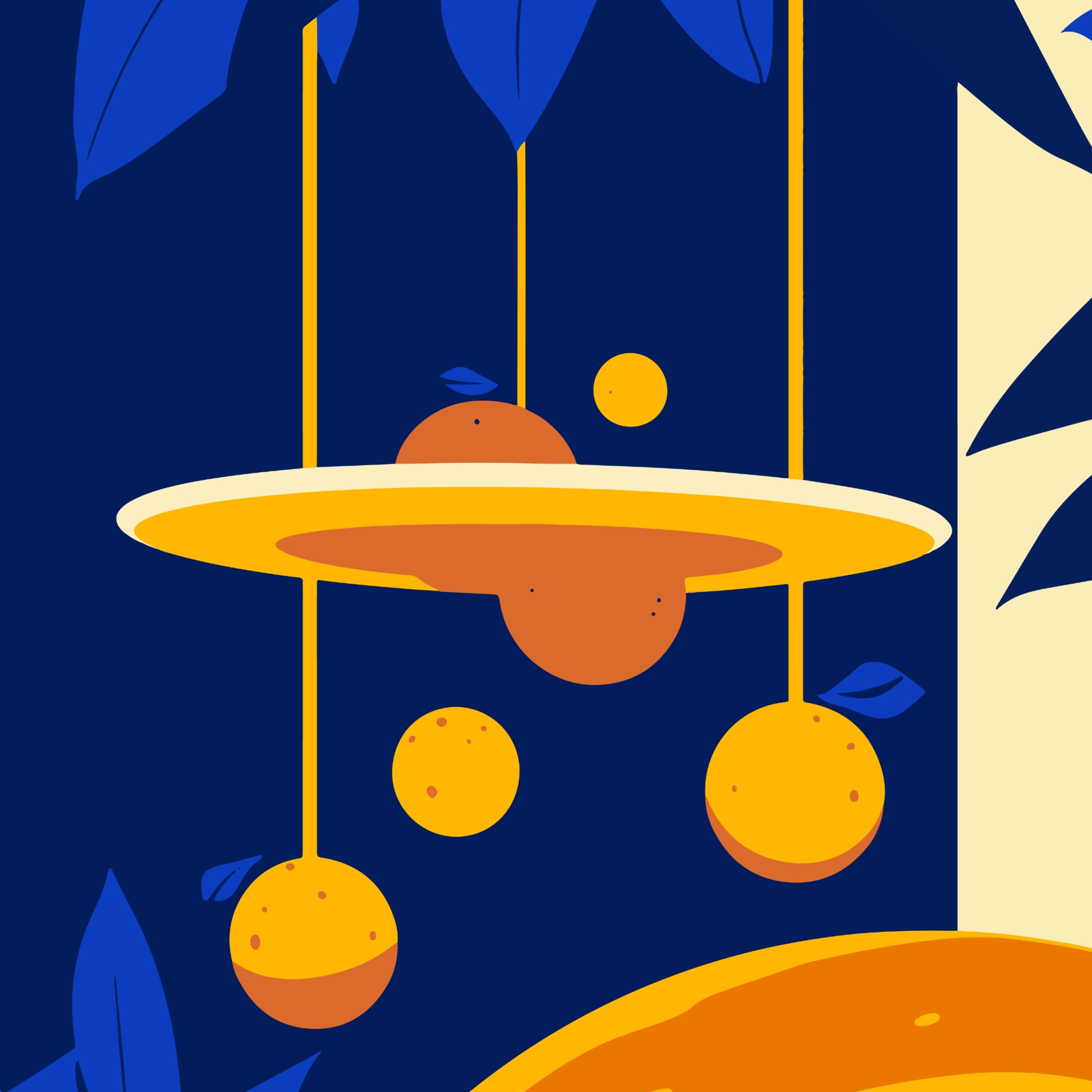
Blaues Brot - Unser LebensmittelsystemEssen 2050: Megatrends, KI und das Potenzial neuer Lebensmittel – In der ZukunftWie denken wir über das, was noch nicht ist – aber sein könnte? Zukunft beginnt nicht mit Technik, sondern mit Vorstellungskraft. Wer Ernährung neu gestalten will, muss lernen, in Möglichkeitsräumen zu denken – jenseits von Trends und Tellerrändern.(01:18): Scheibe 1 – Was ist Zukunft?(08:05): Scheibe 2 – Zukunft als Gestaltungsraum(15:19): Scheibe 3 – Potenziale der ZukunftZukunft entsteht nicht von selbst – sie wird gedacht, erzählt, geformt. In der finalen Folge von Blaues Brot geht es um die Frage, wie wir Ernährungssysteme jenseits linearer Trends und technischer Prognosen wirklich t...
2025-12-1027 min
Scaling Nerds | Startup PR, Thought Leadership and Storytelling for Startup Founders5. Live Pitch-Fix: Finding the Right Narrative for Critical Minerals Startup MagmaticHow can you adapt your pitch on the fly to a potential customer, to an investor, or to a generalist audience? Today you can listen in on a live consulting session where I help a founder crack this question. In this episode, I'm consulting Oliver Siegel, the co-founder and CEO of the deep tech startup Magmatic Bio. Magmatic designs synthetic proteins that separate critical metals from each other. Connect with the host:https://www.linkedin.com/in/schmidt-marina/marina@r2g.mediaNeed help communica...
2025-12-0342 min
Scaling Nerds | Startup PR, Thought Leadership and Storytelling for Startup Founders4. How to Sell Something People Don't Understand (yet) with Nina Mannheimer from KlimIf your startup needs to speak to very different audiences — investors, corporates, consumers — this episode lays out why that skill matters more than most founders think. How you explain your work changes depending on who’s in front of you, and that can decide whether people actually understand what you do. If you’re selling cookies, fine. If you’re building a complex solution to a complex problem, communication becomes core to the product.In this episode, you’ll hear from Nina Mannheim, previously the co-founder and CPO of Klim. Klim started back in 2019 in Berlin, when...
2025-11-2635 min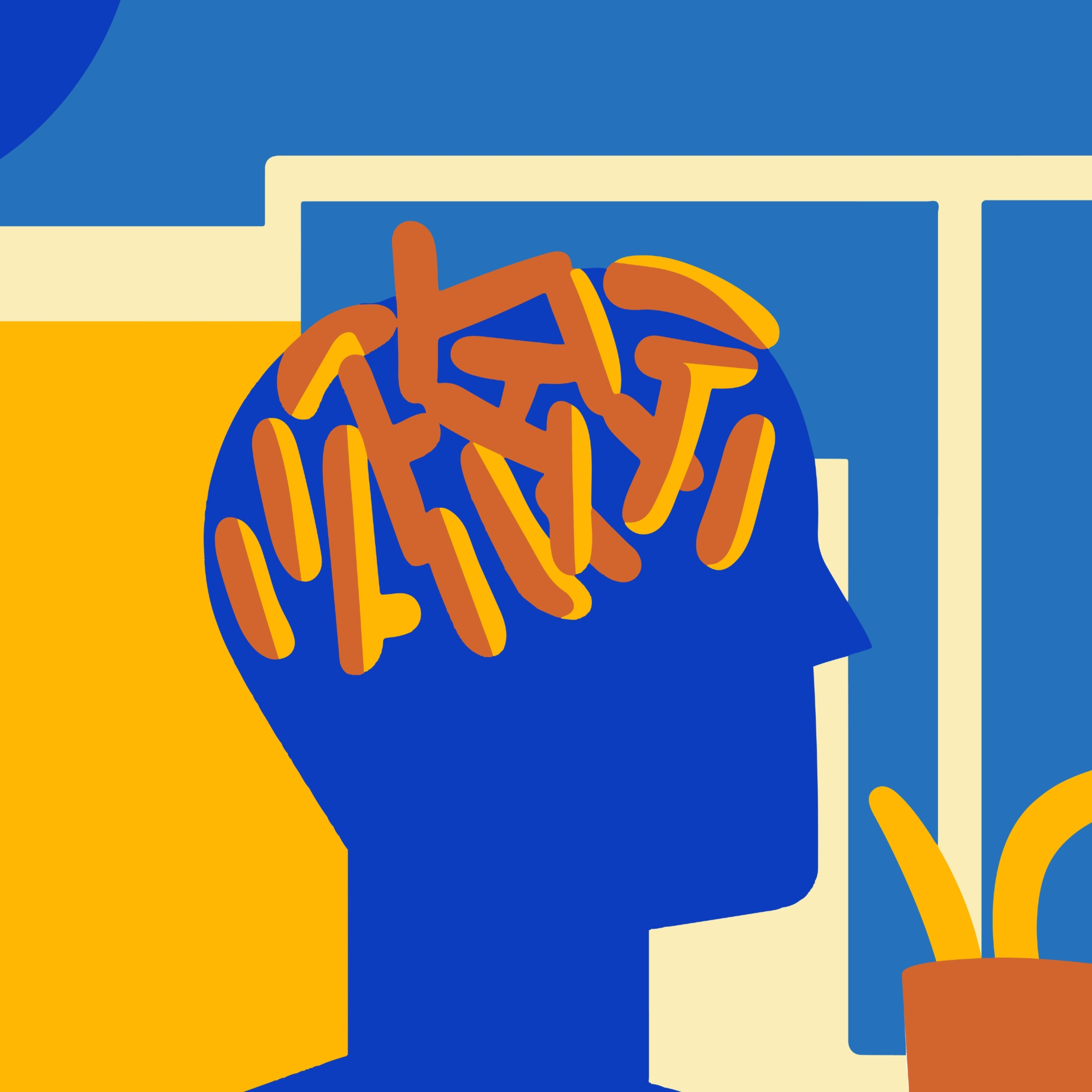
Blaues Brot - Unser LebensmittelsystemAus Abfall wird Lebensmittel: Wie Start-ups Kreislaufwirtschaft neu denken – Im KreislaufWie viel Essen steckt im, was wir Abfall nennen? Abfälle können zu marktfähigen Produkten werden, wenn wir es zulassen. Wir hören wie Food-Startups durch radikale Neugier eingefahrene Routinen sprengen und neue Wege der Lebensmittelverwertung eröffnen.(01:33): Scheibe 1 – Nebenströme als neues Hauptgericht(07:53): Scheibe 2 – Alles, was die Pflanze hergibt(15:11): Scheibe 3 – Innovationen im Bestand: Wie wir Systeme umbauen könnenKreislaufwirtschaft beginnt nicht bei der Tonne, sondern mit der Frage: Warum nutzen wir nur einen Teil der Pflanze – und werfen den Rest weg? Zwei Foodtech-S...
2025-11-2624 min
Scaling Nerds | Startup PR, Thought Leadership and Storytelling for Startup Founders3. Pitching Specialised VCs: Cutting-Edge Tech Doesn’t Sell Itself, with Steve Molino From Synthesis CapitalWhen you are working on a technical or scientific innovation, pitching a specialized VC firm may seem like the light at the end of the tunnel. Finally, someone who will get it. Or… will they?Today’s guest, Steve Molino, is Principal at Synthesis Capital based in New Jersey. And today’s episode asks: How can founders with complex tech craft pitch decks that help them get there, past the initial interest? Ironically, having cutting-edge technology may make it harder, not easier.Steve Molino works across food tech and biotech. Previously, he led investment activity at Cle...
2025-11-1936 min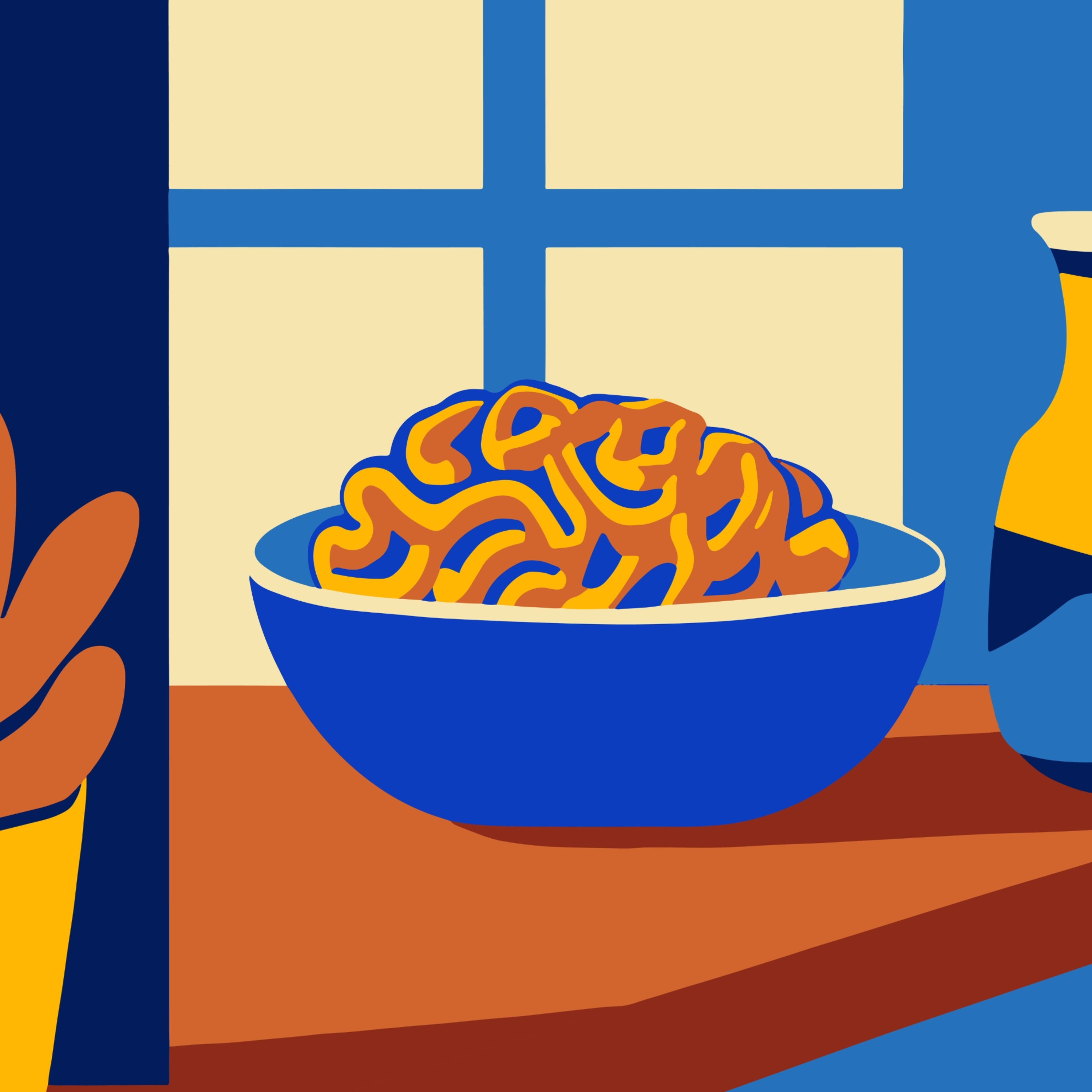
Blaues Brot - Unser LebensmittelsystemWas ist gesundes Essen? Fakten, Mythen & Personalisierte Ernährung – Im MagenLow Carb, Detox, Mikrobiom-Test – was davon bringt wirklich was? Zwischen Ernährungsempfehlungen, Superfood-Hypes und ultra-verarbeiteten Produkten liegt die Wahrheit im Magen – und oft ganz woanders.(01:43): Scheibe 1 – Was bedeutet gesunde Ernährung?(09:10): Scheibe 2 – Personalisierte Ernährung: Hype oder Hoffnung?(20:30): Scheibe 3 – Hochverarbeitete Lebensmittel im FaktencheckWas ist gesunde Ernährung und wer entscheidet das eigentlich? Diese Folge zerlegt populäre Ernährungstrends und blickt hinter die Kulissen der Ernährungsforschung. Die Episode liefert eine fundierte Einordnung von essentiellen und nicht-essentiellen Nährstoffen, beleuchtet die Realität hinter „personalisierter Ernä...
2025-11-1132 min
Scaling Nerds | Startup PR, Thought Leadership and Storytelling for Startup FoundersThe Narrative War: How Founders Shape the Public Narrative for Better or WorseClimate activism failed to inspire hope, can founders fill the void? Discover why the next cultural revolution won’t be led by politicians, but by startup leaders.Episode SummaryIn this solo episode, Marina Schmidt dissects how startup founders have become some of the most powerful public communicators of our time—and why that power matters. She explores the rise of founder evangelism, the cultural shift from corporate branding to personal leadership, and the urgent need for integrity-driven voices in an era of polarization and information overload.Drawing on her deca...
2025-10-2914 min
Scaling Nerds | Startup PR, Thought Leadership and Storytelling for Startup Founders-- Red to Green is now Scaling Nerds -- The Communications Podcast for Science and Tech FoundersThe food tech and biotech podcast Red to Green is becoming Scaling Nerds: the communications podcast for science & tech founders. New episodes every two weeks!Please share with friends, colleagues and whoever might be interested.Connect with Marina Schmidt on LinkedIn:https://www.linkedin.com/in/schmidt-marina/Need help with comms as a startup founder? Check out https://www.wearekinetik.com/
2025-10-2901 min
Blaues Brot - Unser LebensmittelsystemWarum wir essen, was wir essen: Gewohnheiten, Labels & Kaufentscheidungen – Beim KonsumentenWarum greifen wir beim Einkaufen so oft zu Dingen, die wir eigentlich vermeiden wollten? Zwischen Kindheitsprägung, Werbelabels und 30.000 Produkten im Regal – wie viel Kontrolle haben wir wirklich über unser Essverhalten?(02:00): Scheibe 1 – Die Psychologie des Essverhaltens(08:16): Scheibe 2 – Welche Infos steuern unsere Entscheidungen?(16:38): Scheibe 3 – Strukturen und Wertvorstellungen rund ums EssenOb Nutri-Score, Planet Score oder Zutatenlisten – wer gesünder, nachhaltiger oder ethischer konsumieren will, braucht vor allem eines: Orientierung. Doch wie entstehen unsere Kaufentscheidungen wirklich? Wir tauchen tief ein in die Psychologie des Essens und verstehen, warum Informa...
2025-10-2927 min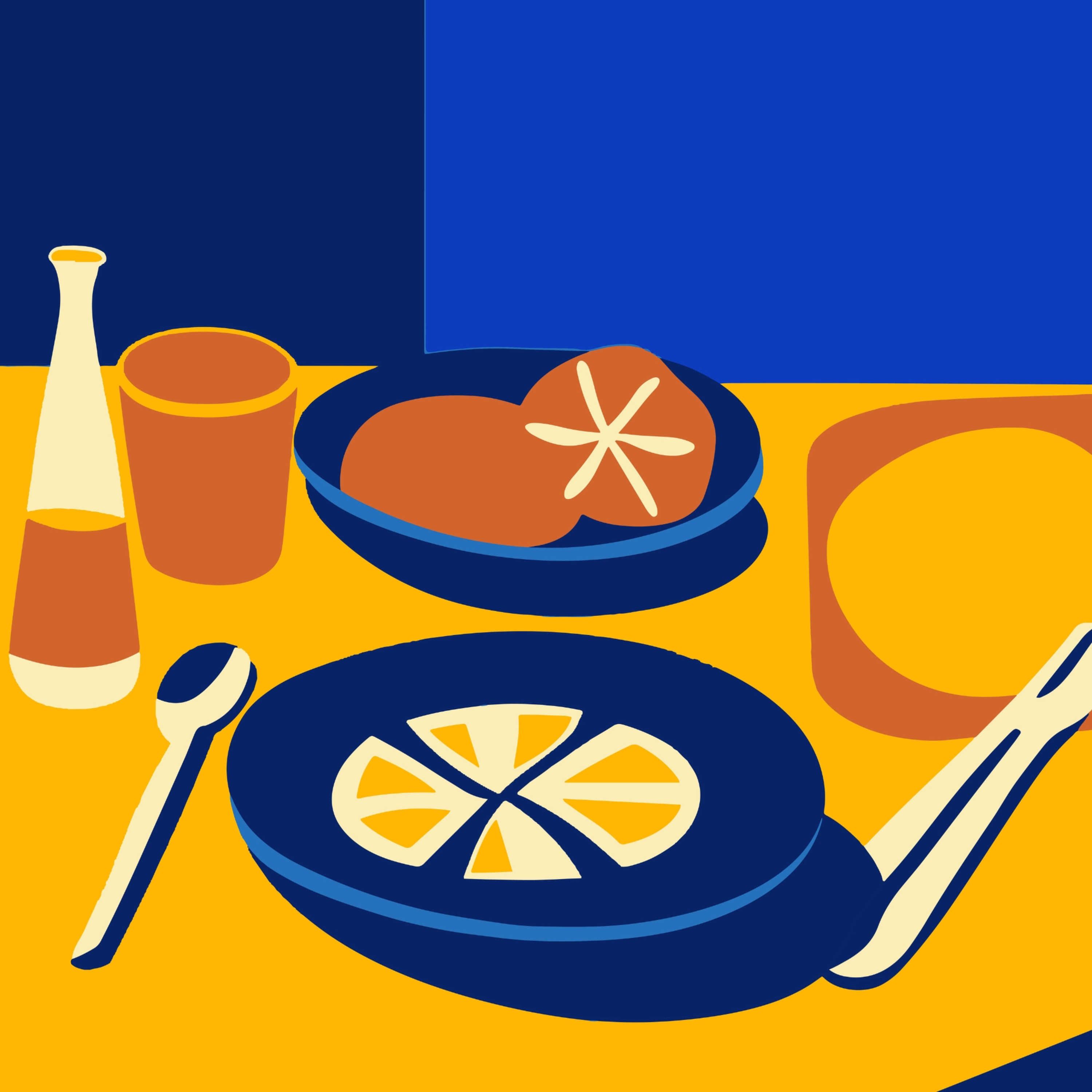
Blaues Brot - Unser LebensmittelsystemMehr als Mittagessen: Wie Kantinen Ernährung und Klima verändern – In der KantineWas wäre, wenn deine Kantine mehr verändert als dein Mittagstief? Was dort täglich auf den Teller kommt, formt nicht nur Essgewohnheiten, sondern auch CO₂-Bilanzen und gesellschaftliche Normen - millionenfach, ganz nebenbei. Was passiert, wenn wir Kantinen als transformations Orte begreifen?(01:28): Scheibe 1 – Veränderungen und Herausforderungen in der Gemeinschaftsverpflegung(07:28): Scheibe 2 – In der Kantine(18:43): Scheibe 3 – Umsetzung und ZukunftsmusikWie sieht die Gemeinschaftsverpflegung der Zukunft aus und warum betrifft sie uns alle? 16 Millionen Mahlzeiten täglich, serviert in Krankenhäusern, Unternehmen und Senioreneinrichtungen. Doch hinter dem Tab...
2025-10-1528 min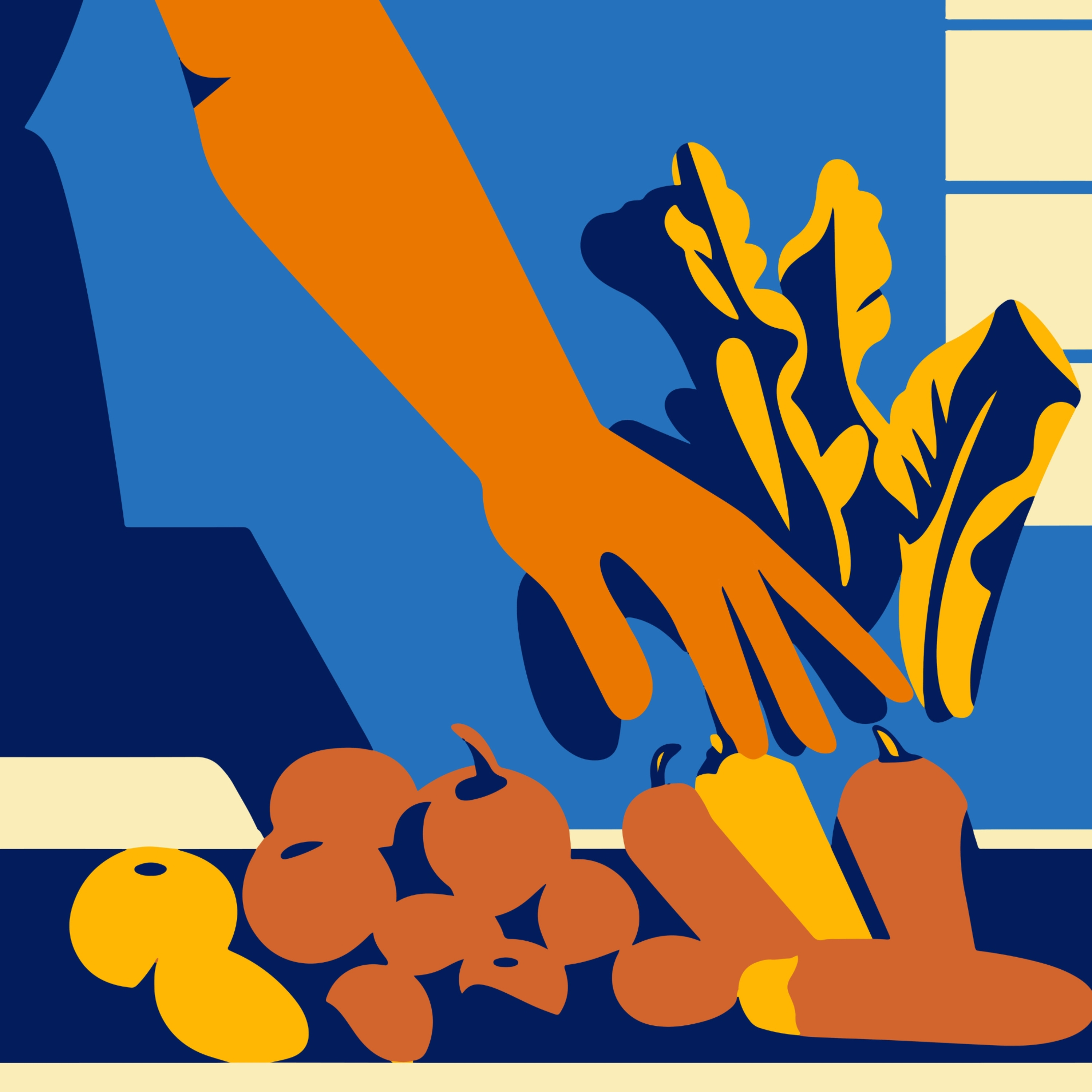
Blaues Brot - Unser LebensmittelsystemSupermarkt als Schaufenster unserer Gesellschaft: Macht, Konsum & Nachhaltigkeit – Im SupermarktSupermärkte bestimmen, was wir essen – nicht durch Zwang, sondern durch Sortiment, Preisparität und Verpackungsdesign. Wie Lidl & Co. Konsumverhalten lenken und Nachhaltigkeit neu verhandeln.(01:29): Scheibe 1 – Die Rolle des Supermarkts(08:55): Scheibe 2 – Nachhaltigkeit im Regal(17:29): Scheibe 3 – Perspektivwechsel: Supermarkt als SymbolWas ist der Supermarkt – nur Einkaufsort oder mächtiger Systemplayer? Diese Episode taucht tief in die Rolle des Handels im Ernährungssystem ein. Mit Stimmen wie der Künstlerin Sonja Stummerer und Alexander Liedke, Nachhaltigkeitsverantwortlicher bei Lidl, beleuchtet Marina Schmidt, wie Supermärkte unsere Esskultur prägen und wo sie Ve...
2025-10-0123 min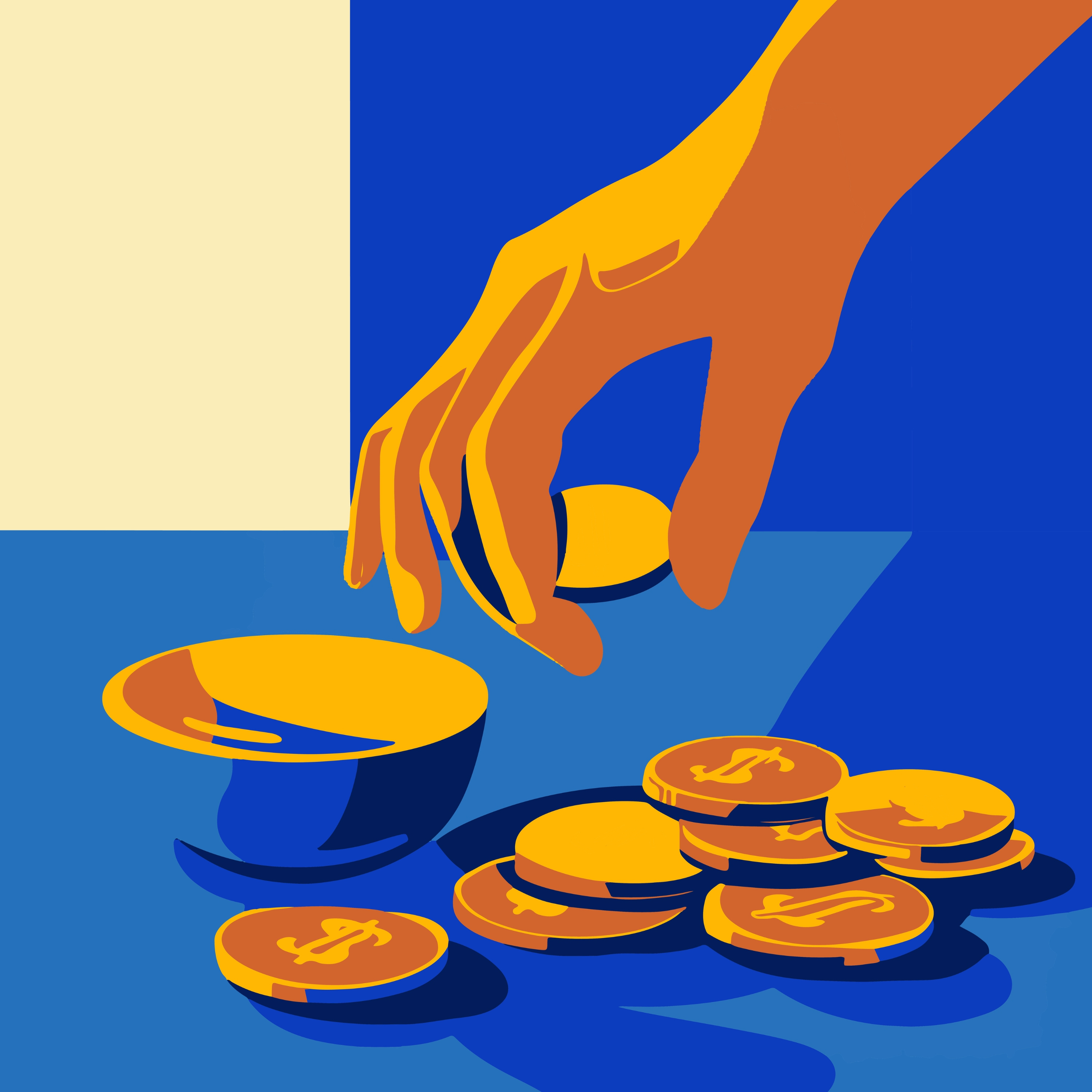
Blaues Brot - Unser LebensmittelsystemVenture Capital für Food-Tech: Startup-Finanzierung, Skalierung & Exits – Beim InvestorWelche Innovationen schaffen es vom Labor auf den Teller? Investoren prägen unser Lebensmittelsystem stärker, als wir denken – mit Kapital, Visionen und Wetten auf die nächste große Idee.(01:42): Scheibe 1 – Wie finanzieren wir Innovation im Lebensmittelsystem?(12:26): Scheibe 2 – Venture Capital: Woher kommt das Geld und was wollen die Investorinnen?(21:34): Scheibe 3 – Im PortfolioWorum gehts?Warum scheitern vielversprechende Food-Startups in Europa, während in den USA Milliarden fließen? In dieser Folge von Blaues Brot durchleuchtet Marina Schmidt das System hinter dem Sys...
2025-09-1734 min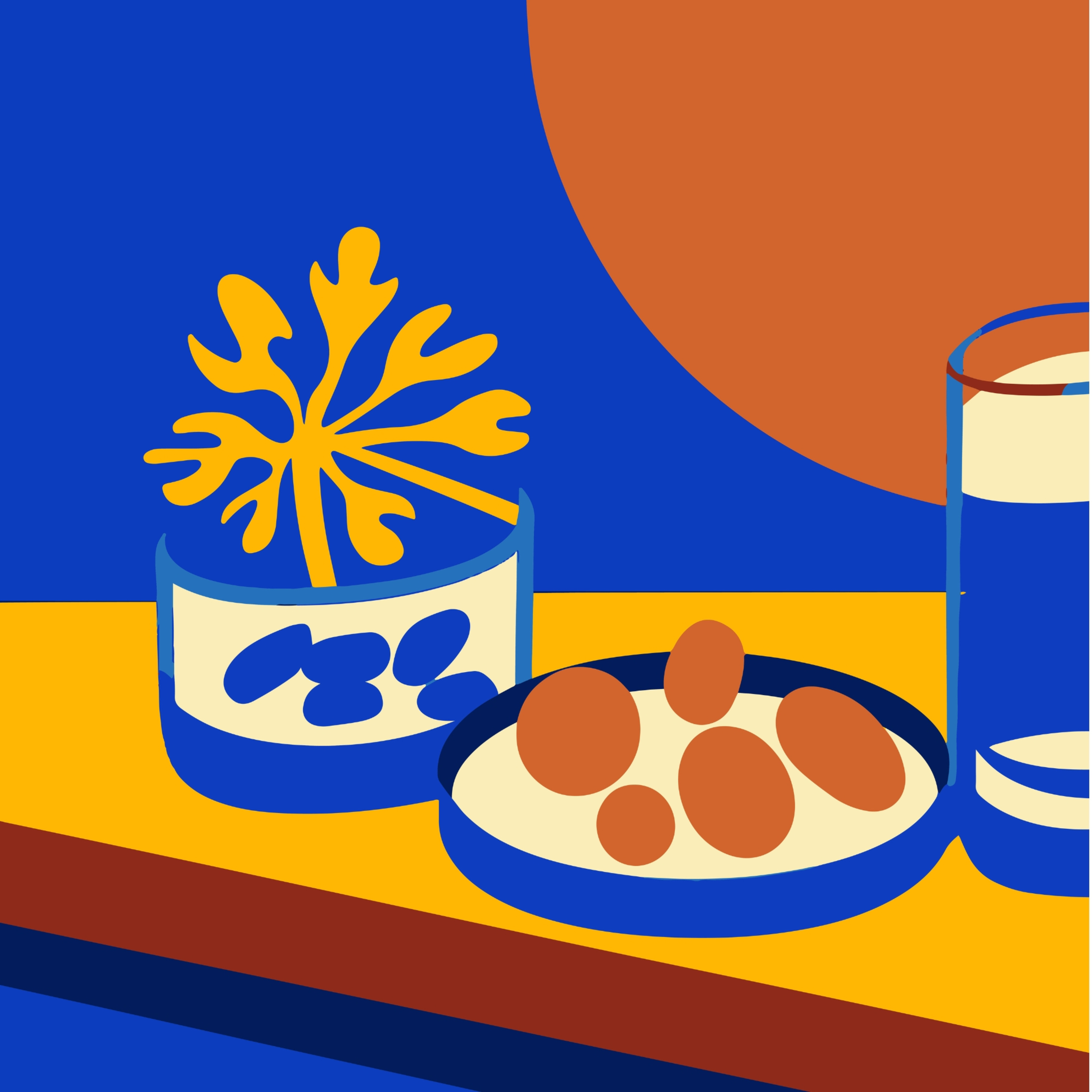
Blaues Brot - Unser LebensmittelsystemWie Verpackungen kreislauffähig werden: Mehrweg, Recycling & Rezyklate – Bei der VerpackungPlastik ist überall in unseren Ozeanen, Supermärkten und sogar im Blut. Doch was wäre, wenn Verpackungen nicht das Ende, sondern der Anfang eines echten Kreislaufs wären?(01:58): Scheibe 1: Der Status quo. Warum sind Verpackungen so wichtig? (09:14): Scheibe 2: Die erste Stufe im Kreislauf Mehrweg (16:56): Scheibe 3: Rezyklat und Recycling, was aus alten Verpackungen Neues entstehen lässtWorum gehts?Einwegverpackungen dominieren den Supermarkt, doch sie belasten Klima, Ressourcen und Gesundheit. Diese Episode erklärt, warum nachhaltige Verpackungen noch immer die Ausnahme sind und was sich...
2025-09-0331 min
Blaues Brot - Unser LebensmittelsystemWarum Food-Startups Europa verlassen: Novel Food & Lobbyismus – In der ZulassungInnovative Food-Start-ups hängen in Brüssel jahrelang fest – während in Singapur bereits kultivierter Lachs serviert wird. Warum kostet uns Europas Vorsorgeprinzip echte Klima- und Standortchancen?(01:55): Scheibe 1 – Grundlagen: Wie funktioniert die Novel-Food-Zulassung?(10:33): Scheibe 2 – Zielkonflikt: Innovation vs. Lebensmittelsicherheit(19:08): Scheibe 3 – Lösungsansätze für ein agiles EU-SystemWorum geht es?Kultivierte Steaks, Algen-Proteine oder Insekten-Snacks gelten in Europa als Novel Food und brauchen eine separate Zulassung. Das bedeutet für Gründer:innen ein Dossier voller Langzeitstudien, Tox- und Allergen-Checks – und im Schnitt drei bis fü...
2025-06-2528 min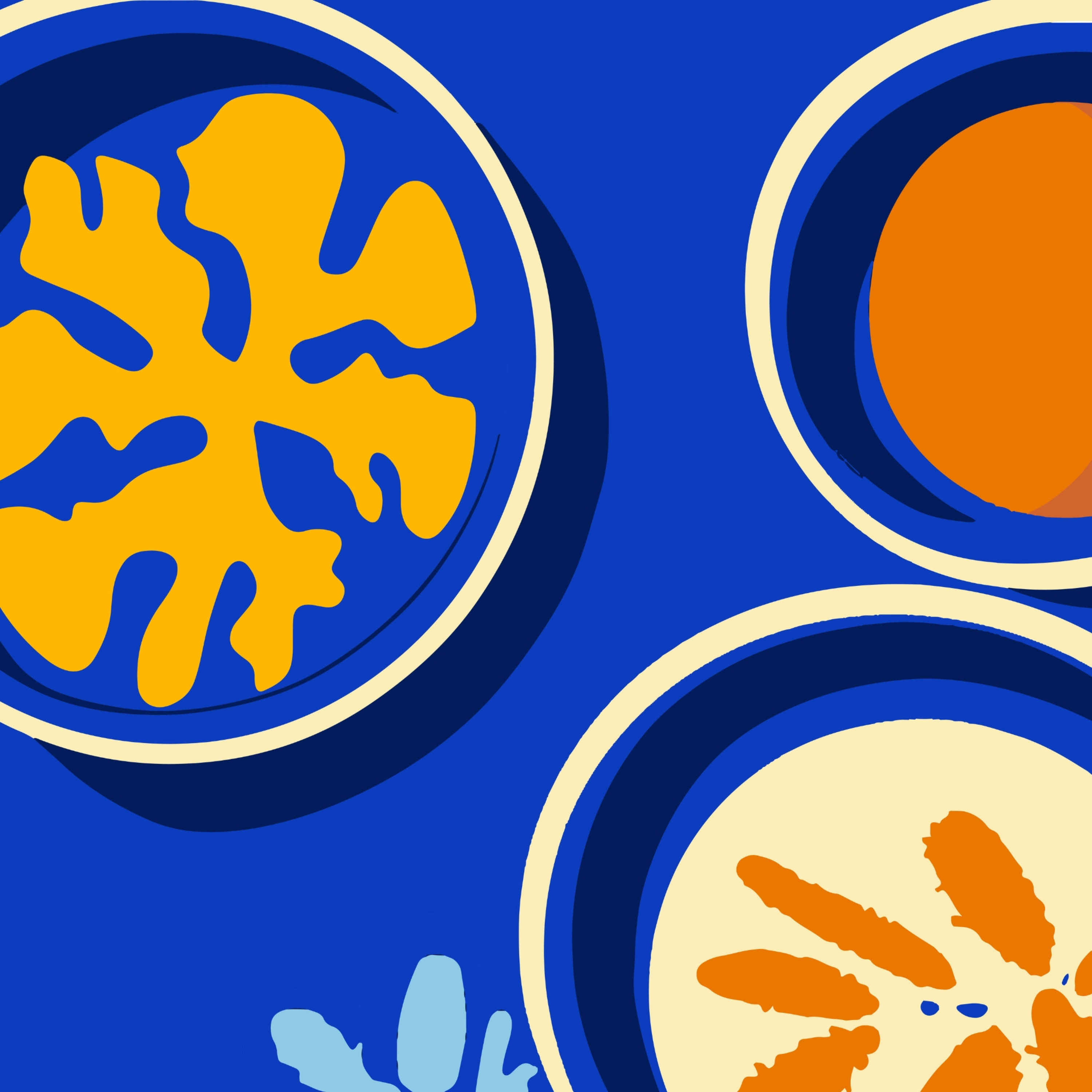
Blaues Brot - Unser LebensmittelsystemFood-Tech-Innovationen: Zellkulturen & Fermentation – Im LaborZellkulturen, Fermentation, Biotech: Unsere Ernährung steht vor einem Umbruch. Was heute im Labor entsteht, könnte morgen globale Lieferketten, Ressourcenverbrauch und Tierhaltung revolutionieren.(00:34): Scheibe 1 – Lebensmittel von morgen(12:04): Scheibe 2 – Im Forschungsstartup(27:17): Scheibe 3 – Mehr Innovation in DeutschlandWorum geht es?Diese Episode zeigt, wie Biotechnologie, Zellkulturen und Fermentation dabei sind, unsere Ernährung grundlegend zu verändern – und warum es gerade in Deutschland oft nicht über die Laborphase hinausgeht. Was braucht es, damit aus innovativen Forschungsideen wie kultiviertem Fisch oder fermentierten Käseproteinen auch echte Produkte...
2025-06-1139 min
Blaues Brot - Unser LebensmittelsystemWie Lieferketten transparent und rückverfolgbar werden – In der LieferketteVom Regenwald bis zum Supermarktregal: Lieferketten entscheiden, wer verdient, wer Verantwortung trägt und wer nicht. Wie schaffen wir echte Transparenz?(00:34): Scheibe 1 – Die Lieferketten (12:04): Scheibe 2 – Transparenz und ihre Herausforderungen (22:56): Scheibe 3 – Vorteile und neue AnsätzeWorum geht es?Lieferketten sind weit mehr als logistische Abläufe, sie bestimmen, wie Macht, Verantwortung und Wertschöpfung im globalen Lebensmittelsystem verteilt werden. Doch statt transparenter Strukturen dominieren Intransparenz, Verantwortungslücken und ein unübersichtliches Geflecht aus Zwischenhändlern. Diese Episode zeigt, warum selbst engagierte Unternehmen oft kaum wissen, woher ihre Ro...
2025-05-2835 min
Blaues Brot - Unser LebensmittelsystemMacht im Welthandel: Märkte, Abhängigkeiten & Ernährungssicherheit – Im Globalen HandelWas bestimmt, was du isst? Vom Ukrainekrieg bis Pfefferspekulation, diese Episode zeigt, wie geopolitische Machtspiele und globale Handelsströme dein Essen beeinflussen.(01:46): Scheibe 1: Wer gestaltet den Handel?(16:32): Scheibe 2:Globale Handelsdynamiken(32:38): Scheibe 3: Selbstversorgung vs. ImportWorum geht es?Diese Episode deckt auf, wie geopolitische Ereignisse, Marktmonopole und Handelsabkommen die globalen Lebensmittelströme steuern und damit direkt beeinflussen, was in deinem Einkaufskorb landet. Wir analysieren, wie Händler, Staaten und Spekulanten Preise und Verfügbarkeit kontrollieren, warum das Menschenrecht auf Nahrung unter Druck steht und welc...
2025-05-1435 min
Blaues Brot - Unser LebensmittelsystemDüngemittel, aber zu welchem Preis? – Auf dem FeldDünger steckt in fast jedem Bissen, aber zu welchem Preis? Wir fragen uns: Woher kommen unsere Düngemittel, was richten sie in Boden, Wasser und Klima an und wie führen wir Nährstoffe zurück in den Boden ohne der Umwelt zu schaden?(01:46) Scheibe 1: In der Produktion(13:58) Scheibe 2: Umweltauswirkungen(21:00) Scheibe 3: Regulierung und LösungsansätzeWorum geht es in dieser Episode?Düngemittel sichern Erträge und belasten gleichzeitig Umwelt und Klima. Diese Folge beleuchtet, wie moderne und organische Dünger hergestell...
2025-04-3034 min
Blaues Brot - Unser LebensmittelsystemAquakultur, Schwermetalle & das Nahrungsnetz im Meer – Beim FischWie können wir Fisch essen, ohne unsere Meere zu überlasten? Diese Episode zeigt Wege aus der Überfischung – von einem Verständnis der Nahrungsnetz zu alten Teichtraditionen bis zu Hightech-Garnelenzucht.(02:24) Scheibe 1: Wie wir Fisch essen und welche Auswirkungen das hat(11:45) Scheibe 2: Aquakultur(22:09) Scheibe 3: Innovation und RegulationQuellenBundesministerium für Ernährung und Ernährung. (n.d.). Vermarktung und Verarbeitung. Portal Fischerei. https://www.portal-fischerei.de/bund/vermarktung-und-verarbeitungBei Fragen oder Anregungen schreibt uns unter blauesbrot@r2g.media ode...
2025-04-1641 min
Blaues Brot - Unser LebensmittelsystemTierhaltung im Spannungsfeld von Klima, Konsum & Kreislauf – Im StallTierhaltung – Auslaufmodell oder Zukunftslösung? In dieser Episode schauen wir ohne Scheuklappen auf Stall, Futtertrog und Supermarktregal und fragen: Wie kann Tierhaltung nachhaltiger, fairer und sinnvoller werden?(00:00) Intro – Fleischkonsum zwischen Tabu und Transformation(02:19) Scheibe 1: Von Veredelung zur Belastung – Wie Tierhaltung entstand(17:36) Scheibe 2: Tier ganz oder gar nicht – Von Hühnerkeulen und Kuhhufen(27:08) Scheibe 3: Vom Stall zum Kreislauf – Zirkuläre Tierhaltung als ZukunftsmodellQuellen:Poore, J., & Nemecek, T. (2018). Reducing food’s environmental impacts through producers and consumers. Science, 360(6392), 987–992. https://doi.org/10.1126/science.aaq0216
2025-04-0238 min
Blaues Brot - Unser LebensmittelsystemTech auf dem Acker – wenn Land auf Digital trifft – Auf dem TraktorTraktoren, die auf virtuellen Schienen fahren, Drohnen zur Schädlingsbekämpfung und smarte Sensorik – kann Digitalisierung die Landwirtschaft nachhaltiger machen?(00:00) Intro(05:00) Scheibe 1: Mechanisierung – Mehr Maschine, weniger Mensch?(13:30) Scheibe 2: Entscheidungshilfsmittel – Sensorik und Datenmanagement(22:40)Scheibe 3: Künstliche Intelligenz – Die Zukunft der Landwirtschaft?Worum geht es in dieser Episode?In dieser Episode von Blaues Brot tauchen wir ein in die spannende Welt der modernen Landwirtschaft. Wie verändern Digitalisierung, KI und smarte Technologien die Arbeit auf dem Feld? Unsere Gäste zeigen, wie moderne Technik Erträ...
2025-03-1936 min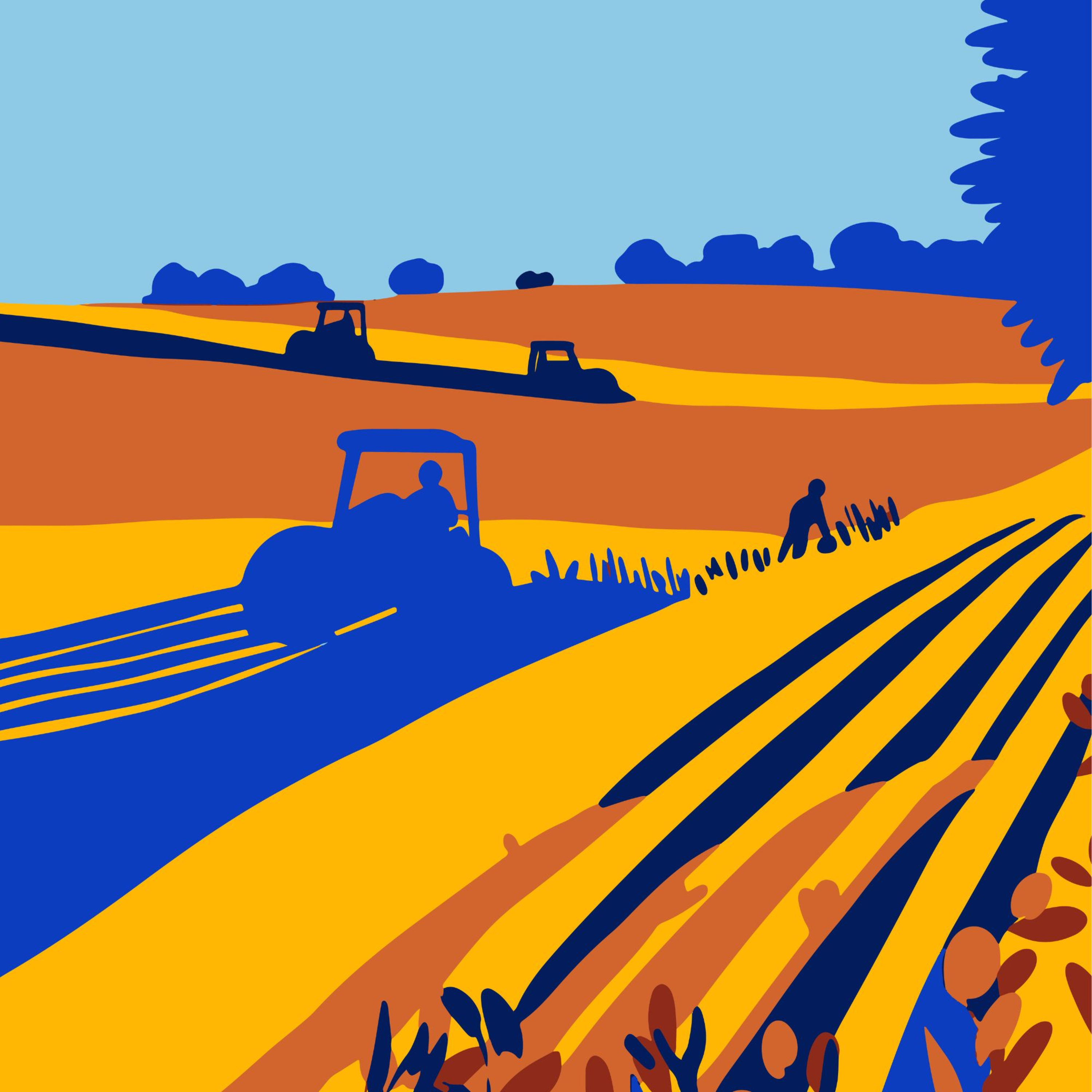
Blaues Brot - Unser LebensmittelsystemFinanzdruck am Hof: Investitionen, Schulden & geringe Margen – Beim LandwirtGeld regiert die Welt – aber wie sieht es in der Landwirtschaft aus? Zwischen schwankenden Preisen, Hofnachfolge-Problemen und der Finanzierung nachhaltiger Betriebe stellt sich die Frage: Wer soll das bezahlen?(00:00) Intro(01:40) Scheibe 1: Strukturwandel und Hofnachfolge(13:35) Scheibe 2: Neue Einnahmequellen und wirtschaftliche Modelle(21:00) Scheibe 3: Die Finanzierung umweltfreundlicher LandwirtschaftWorum geht es in dieser Episode?Landwirtschaftliche Betriebe stehen unter enormem wirtschaftlichen Druck: Hohe Kosten, schwankende Preise und fehlende Nachfolge belasten Landwirt:innen. Doch es gibt Lösungen! In dieser Episode erfahrt ihr...
2025-03-0537 min
Blaues Brot - Unser LebensmittelsystemRegenerative Landwirtschaft, Humusaufbau & CO₂-Speicherung – Im BodenJahrzehntelange intensive Landwirtschaft hat unsere Böden ausgelaugt, den Klimawandel befeuert und stellt unsere Ernährungssicherheit auf wacklige Beine. Nun kämpfen visionäre Landwirtinnen, Forschende und Start-ups mit regenerativen Methoden – von No-Till und Zwischenfrüchten bis hin zu Agroforstsystemen – um fruchtbare Erde, klimastabile Erträge und eine Zukunft, in der wir alle satt werden.(00:00) Intro(01:55) Scheibe 1: Die Probleme der modernen Landwirtschaft(09:12) Scheibe 2: Regenerative Landwirtschaft als Lösung(24:54) Scheibe 3: Wege zur Transformation der LandwirtschaftQuellen...
2025-02-1938 min
Blaues Brot - Unser LebensmittelsystemMonokulturen, Fleischkonsum & Kalorienflut – In der VergangenheitWie kam es zu unserem heutigen Lebensmittelsystem, und welchen Preis zahlen wir dafür? Drei HistorikerInnen nehmen uns mit auf eine Reise durch die Vergangenheit der Nahrungsmittelproduktion und zeigen, was wir daraus für die Zukunft lernen können.(00:00) Intro(01:40) Scheibe 1: Die Industrialisierung der Landwirtschaft(10:10) Scheibe 2: Die Entwicklung der Fleischwirtschaft (18:30) Scheibe 3: Globalisierung und VielfaltAnm.d.Red.In dieser Folge wird zur Vereinfachung von „3 Historikern“ gesprochen. Genauer gesagt ist Prof. Dr. Christian Kassung Kulturwissenschaftler mit einem Schwerpunkt auf Geschichte.
2025-02-0535 min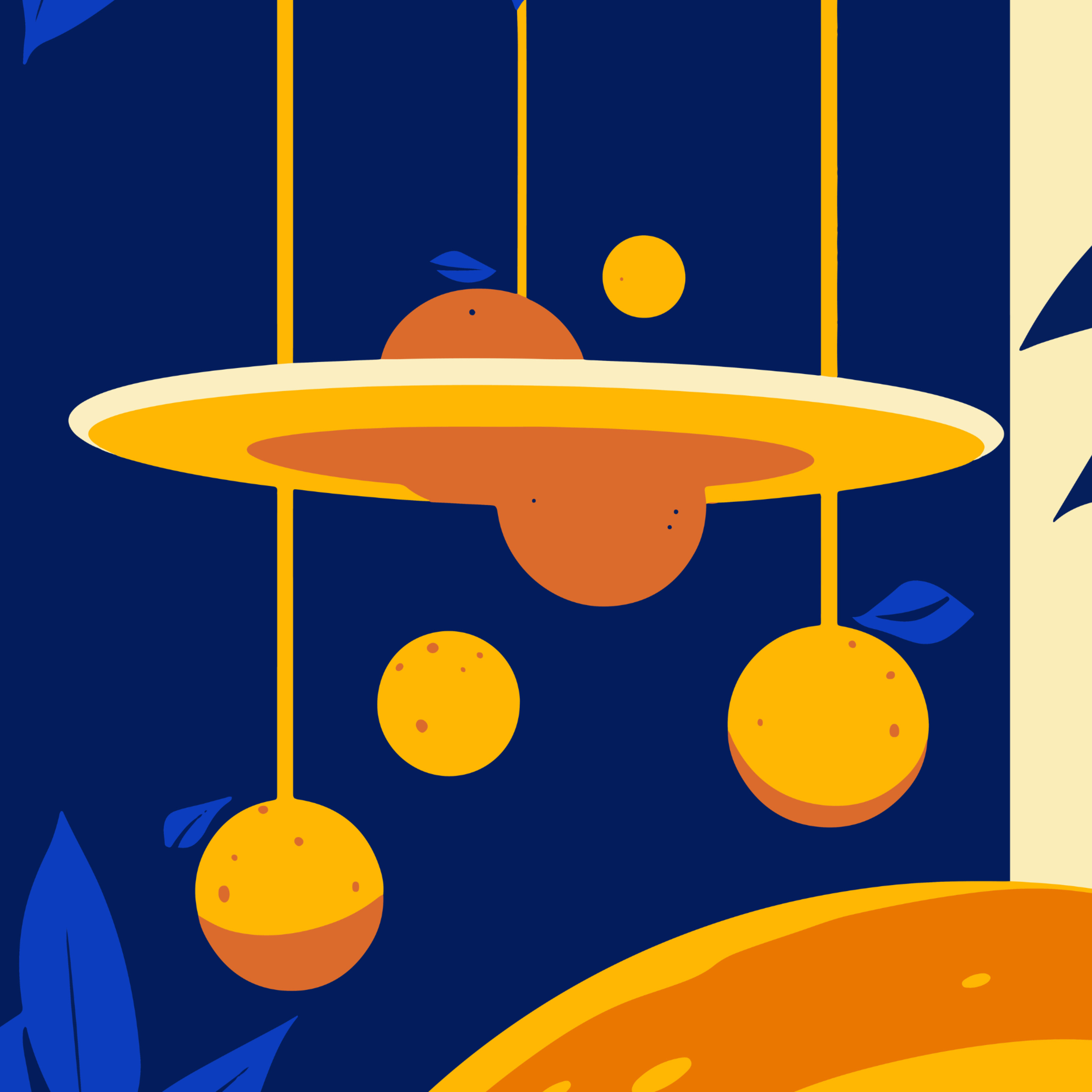
Blaues Brot - Unser LebensmittelsystemSo verändern wir Systeme: Denken, Handeln & Einfluss nehmen – EinführungWie können wir ein nachhaltiges, faires und gesundes Lebensmittelsystem schaffen? Diese Episode zeigt, warum systemisches Denken essenziell ist, wie jeder von uns durch kleine Veränderungen langfristigen Impact erzielen kann. Es geht nicht nur um radikale Transformation, sondern auch um das Bewahren kultureller Werte.(00:00) Intro(03:37) Scheibe 1: Systemisches Denken(12:47) Scheibe 2: Transformation und Bewahren(21:32) Scheibe 3: Passiver ImpactAnm. d. Red.Jörg Reuter ist Geschäftsführer bei Narrative Foods und nicht mehr bei Art & Project Nature & Nutrition GmbH....
2025-02-0531 min
Scaling Nerds | Startup PR, Thought Leadership and Storytelling for Startup Founders8.1. What is Micro Fermentation? New Cheeses Made with Koji Protein - Formo CEO Raffael WohlgensingerFind out all the details about micro fermentation. Discover how Formo is using this process to churn out Koji protein-based cheese alternatives that are hitting over 2000 stores in the DACH region.
The episode breaks down the differences between micro and precision fermentation and why micro fermentation's quicker market route is so exciting.
Learn about the sustainability perks and the cool science behind cheese without cows. Whether you're into biotech, sustainable food, or just love cheese, this deep dive offers a taste of the future.
LINKS / Mentions
The Bright...
2024-09-1249 min
Scaling Nerds | Startup PR, Thought Leadership and Storytelling for Startup Founders7.8. The Woman Behind Environmentalism 📖 Understanding the GMO debate - Seeds of Science Part IIHave you heard of the writer Rachel Carlson before? She is one of the most important writers who indirectly shaped how you, I, and many people in the West view industrial agriculture. Many would date the beginning of the modern environmental movement to September 1962, when her book “Silent Spring” began to roll off the presses.
The work of Rachel Carson shaped how the public sees modern agriculture. It has created an awareness that we aren’t separate from nature, and that what goes around comes around.
Monsanto and many other agrochemical companies got into PR troubl...
2023-11-2530 min
Scaling Nerds | Startup PR, Thought Leadership and Storytelling for Startup Founders(Old/R2G) 7. SEASON FINAL - BOOK TALKS - What Food Futurist are you? 🔮 Part II of Meals to Come- An old episode from the Red to Green Podcast on Food Tech & Bio Tech. Listen if you are interested in the future of food, but this isn’t Scaling Nerds.Red to Green was a podcast that investigated how to transition the food industry from harmful to healthy, from polluting to sustainable, from Red to Green. Each season had a different topicSeason: Cultivated MeatSeason: Plastic AlternativesSeason: Food HistorySeason: Food WasteSeason: Biotech in FoodSeason: Book Reviews on the future of foodLet’s finish discussing our book “Meals to Come- The Histor...
2023-11-2519 min
Scaling Nerds | Startup PR, Thought Leadership and Storytelling for Startup Founders7. SEASON FINAL - Book Summaries and QuizHey there! I got some awesome feedback about the last episode of our biotech season! I decided to keep the same format for Season 7 because it really helps us learn better. Remember how repeating things helps us remember them? Well, we're going to do just that! I'll ask one question about each episode, give you some time to pause and think about it, and then I'll give you a quick summary of what the author had to say. If you need a refresher, feel free to go back and watch previous episodes. Let's get going!
2023-11-2530 min
Scaling Nerds | Startup PR, Thought Leadership and Storytelling for Startup Founders7. Season Final - Book Summaries and QuizWe go though all books and summarize some key themes.
Support Red to Green https://www.patreon.com/RedtoGreen
Get funding for your food science research: https://en.raps-stiftung.de/foerderbereiche/lebensmittelforschung
More info and links to resources on https://redtogreen.solutions/
Seeds of Science https://www.amazon.com/Seeds-Science-Why-Wrong-GMOs/dp/1472946987
Connect with the host, Marina https://www.linkedin.com/in/schmidt-marina/
Connect with the host, Frank https://www.linkedin.com/in/frankkuehne/
Please rate the podcast on Spotify and iTunes!
2023-07-2600 min
Scaling Nerds | Startup PR, Thought Leadership and Storytelling for Startup Founders(Old/R2G) 7.10. Three Archetypes of the Future of Food - The History of the Future of Food- An old episode from the Red to Green Podcast on Food Tech & Bio Tech. Listen if you are interested in the future of food, but this isn’t Scaling Nerds.Red to Green was a podcast that investigated how to transition the food industry from harmful to healthy, from polluting to sustainable, from Red to Green. Each season had a different topicSeason: Cultivated MeatSeason: Plastic AlternativesSeason: Food HistorySeason: Food WasteSeason: Biotech in FoodSeason: Book Reviews on the future of foodThe worry and the question “will we run out of f...
2023-07-1735 min
Scaling Nerds | Startup PR, Thought Leadership and Storytelling for Startup Founders(Old/R2G) 7.9. When a Scientist Whistleblows Pesticides - The Monsanto Papers- An old episode from the Red to Green Podcast on Food Tech & Bio Tech. Listen if you are interested in the future of food, but this isn’t Scaling Nerds.Red to Green was a podcast that investigated how to transition the food industry from harmful to healthy, from polluting to sustainable, from Red to Green. Each season had a different topicSeason: Cultivated MeatSeason: Plastic AlternativesSeason: Food HistorySeason: Food WasteSeason: Biotech in FoodSeason: Book Reviews on the future of foodIn May 2019, the husband and wife Alva and Alberta Pilliod wo...
2023-07-1735 min
Scaling Nerds | Startup PR, Thought Leadership and Storytelling for Startup Founders(Old/R2G) 7.7. GMO-Activists ✊ The Biggest Marketing Mistake - Seeds of Science- An old episode from the Red to Green Podcast on Food Tech & Bio Tech. Listen if you are interested in the future of food, but this isn’t Scaling Nerds.Red to Green was a podcast that investigated how to transition the food industry from harmful to healthy, from polluting to sustainable, from Red to Green. Each season had a different topicSeason: Cultivated MeatSeason: Plastic AlternativesSeason: Food HistorySeason: Food WasteSeason: Biotech in FoodSeason: Book Reviews on the future of foodIn early 2012 scientists at Rothamsted Research in England started an...
2023-06-2125 min
Scaling Nerds | Startup PR, Thought Leadership and Storytelling for Startup Founders7.6. Understanding the most used Pesticide - More than Glyphosate 🌿"The World According to Monsanto - Pollution, Corruption and the Control of our food supply" - what a book title. As an agrifood historian, I enjoyed a whole seminar just on the history of pesticides. And let me tell you - it's shady and super interesting.
!! Find the sources, key takeaways and links on our blog: https://redtogreen.ghost.io/what-monsanto-teaches-us-about-biotech/
Find out about the world's most popular pesticide Glyphosate. And about "the World's most evil company" - Monsanto, according to TopTens.
French TV journalist and documentary filmmaker Marie-Monique Robin wrote the book. Sh...
2023-06-0743 min
Scaling Nerds | Startup PR, Thought Leadership and Storytelling for Startup Founders(Old/R2G) 7.5. Lobbying Strategies in US vs. Europe - Food Politics part II- An old episode from the Red to Green Podcast on Food Tech & Bio Tech. Listen if you are interested in the future of food, but this isn’t Scaling Nerds.Red to Green was a podcast that investigated how to transition the food industry from harmful to healthy, from polluting to sustainable, from Red to Green. Each season had a different topicSeason: Cultivated MeatSeason: Plastic AlternativesSeason: Food HistorySeason: Food WasteSeason: Biotech in FoodSeason: Book Reviews on the future of foodSo how are the politics of the food system ri...
2023-05-3129 min
Scaling Nerds | Startup PR, Thought Leadership and Storytelling for Startup Founders(Old/R2G) 7.4. Food Politics - How the Food Industry Influences Nutrition and Health- An old episode from the Red to Green Podcast on Food Tech & Bio Tech. Listen if you are interested in the future of food, but this isn’t Scaling Nerds.Red to Green was a podcast that investigated how to transition the food industry from harmful to healthy, from polluting to sustainable, from Red to Green. Each season had a different topicSeason: Cultivated MeatSeason: Plastic AlternativesSeason: Food HistorySeason: Food WasteSeason: Biotech in FoodSeason: Book Reviews on the future of foodWhy nutrition guidelines have become too much about single nu...
2023-05-2432 min
Scaling Nerds | Startup PR, Thought Leadership and Storytelling for Startup Founders7.4. Nanotechnology and Food Safety 💨 the good, the bad and the dusty 🔬Discussing the book "Future Foods, how modern science is transforming the way we eat." Nanotech is the science of dealing with materials at the size and range of nanometers. And you may wonder, okay, what is that size? Well, it's about a thousand times smaller than a human hair. And with that size also come very special benefits, but also drawbacks. The book was published in 2019 and written by David Julian. McClements is a British food scientist and distinguished professor at the University of Massachusetts.
Sources and further reading
Marina's notes on...
2023-05-1737 min
Scaling Nerds | Startup PR, Thought Leadership and Storytelling for Startup Founders7.3. Understanding Carbon Emissions of Food - The Carbon Footprint of EverythingIs "climate-friendly eating" a thing? We discuss what makes food carbon-intensive and how to reduce carbon emissions by choosing food that is in season, transported by boat instead of a plane, and grown locally.
LINKS
Get funding for your food science research: https://en.raps-stiftung.de/
Find out more about the book The Carbon Footprint of Everything
More info and links to resources on https://redtogreen.solutions/
Connect with the host, Marina https://www.linkedin.com/in/schmidt-marina/
Connect with the host, Frank https://www.li...
2023-05-1037 min
Scaling Nerds | Startup PR, Thought Leadership and Storytelling for Startup Founders(Old/R2G) 7.2. Blind Spots of Food Tech 🔍 Distribution and Responsibility - Part II of Stuffed and Starved- An old episode from the Red to Green Podcast on Food Tech & Bio Tech. Listen if you are interested in the future of food, but this isn’t Scaling Nerds.Red to Green was a podcast that investigated how to transition the food industry from harmful to healthy, from polluting to sustainable, from Red to Green. Each season had a different topicSeason: Cultivated MeatSeason: Plastic AlternativesSeason: Food HistorySeason: Food WasteSeason: Biotech in FoodSeason: Book Reviews on the future of foodThis is the second part of our discussion on th...
2023-05-0333 min
Scaling Nerds | Startup PR, Thought Leadership and Storytelling for Startup Founders(Old/R2G) 7.1. Stuffed and Starved 🍔 Understanding Inequality in our Food System- An old episode from the Red to Green Podcast on Food Tech & Bio Tech. Listen if you are interested in the future of food, but this isn’t Scaling Nerds.Red to Green was a podcast that investigated how to transition the food industry from harmful to healthy, from polluting to sustainable, from Red to Green. Each season had a different topicSeason: Cultivated MeatSeason: Plastic AlternativesSeason: Food HistorySeason: Food WasteSeason: Biotech in FoodSeason: Book Reviews on the future of foodWelcome to our season called "Book Talks." In the fi...
2023-04-2628 min
Scaling Nerds | Startup PR, Thought Leadership and Storytelling for Startup Founders(Old/R2G) 7. SEASON TRAILER - Books on the future of food 📕 Reviewing and discussing- An old episode from the Red to Green Podcast on Food Tech & Bio Tech. Listen if you are interested in the future of food, but this isn’t Scaling Nerds.Red to Green was a podcast that investigated how to transition the food industry from harmful to healthy, from polluting to sustainable, from Red to Green. Each season had a different topicSeason: Cultivated MeatSeason: Plastic AlternativesSeason: Food HistorySeason: Food WasteSeason: Biotech in FoodSeason: Book Reviews on the future of foodDo you ever think, "Oh, I wish I would ha...
2023-04-1301 min
Scaling Nerds | Startup PR, Thought Leadership and Storytelling for Startup Founders6. SEASON FINAL - Summary & Quiz on Biotech in Food - Precision Fermentation, Biomass Fermentation, Molecular Farming and MoreI have something very special for you. You can see it as a quiz to test your knowledge and also a way to find out which topics you still want to look into more deeply. For each episode, I will ask you a question, give you time to answer it, so you don’t need to stop the audio, and then share how I would answer it. Even if you don’t come up with the answer, trying to look for it engages your brain differently. And helps to change “I heard something” to “I learned something.
2023-03-0832 min
Scaling Nerds | Startup PR, Thought Leadership and Storytelling for Startup Founders(Old/R2G) 6.12. Regulatory approval in Europe vs. the US and Singapore with Seth Roberts, The Good Food Institute Europe- An old episode from the Red to Green Podcast on Food Tech & Bio Tech. Listen if you are interested in the future of food, but this isn’t Scaling Nerds.Red to Green was a podcast that investigated how to transition the food industry from harmful to healthy, from polluting to sustainable, from Red to Green. Each season had a different topicSeason: Cultivated MeatSeason: Plastic AlternativesSeason: Food HistorySeason: Food WasteSeason: Biotech in FoodSeason: Book Reviews on the future of foodWhy is it so hard to get approved in Eu...
2023-02-2236 min
Scaling Nerds | Startup PR, Thought Leadership and Storytelling for Startup Founders(Old/R2G) 6.11. The investor's perspective on biotech 🎢 in food with Foodlabs Principal Christian Guba- An old episode from the Red to Green Podcast on Food Tech & Bio Tech. Listen if you are interested in the future of food, but this isn’t Scaling Nerds.Red to Green was a podcast that investigated how to transition the food industry from harmful to healthy, from polluting to sustainable, from Red to Green. Each season had a different topicSeason: Cultivated MeatSeason: Plastic AlternativesSeason: Food HistorySeason: Food WasteSeason: Biotech in FoodSeason: Book Reviews on the future of foodHow venture capital shapes the biotech space, the challenges of...
2023-02-1530 min
Scaling Nerds | Startup PR, Thought Leadership and Storytelling for Startup Founders(Old/R2G) 6.10. Scaling food biotechnology 📈 bioreactors, inputs and brains with GFI Lead Scientist Elliot Swartz- An old episode from the Red to Green Podcast on Food Tech & Bio Tech. Listen if you are interested in the future of food, but this isn’t Scaling Nerds.Red to Green was a podcast that investigated how to transition the food industry from harmful to healthy, from polluting to sustainable, from Red to Green. Each season had a different topicSeason: Cultivated MeatSeason: Plastic AlternativesSeason: Food HistorySeason: Food WasteSeason: Biotech in FoodSeason: Book Reviews on the future of foodWe need to scale. But how? The biotech space is...
2023-02-0835 min
Scaling Nerds | Startup PR, Thought Leadership and Storytelling for Startup Founders(Old/R2G) 6.9. Mimiking Honey and Monoculture Honey Productions 🐝 Melibio CEO Darko Mandich- An old episode from the Red to Green Podcast on Food Tech & Bio Tech. Listen if you are interested in the future of food, but this isn’t Scaling Nerds.Red to Green was a podcast that investigated how to transition the food industry from harmful to healthy, from polluting to sustainable, from Red to Green. Each season had a different topicSeason: Cultivated MeatSeason: Plastic AlternativesSeason: Food HistorySeason: Food WasteSeason: Biotech in FoodSeason: Book Reviews on the future of foodWe lack bees, we lack insects and it's a se...
2023-02-0137 min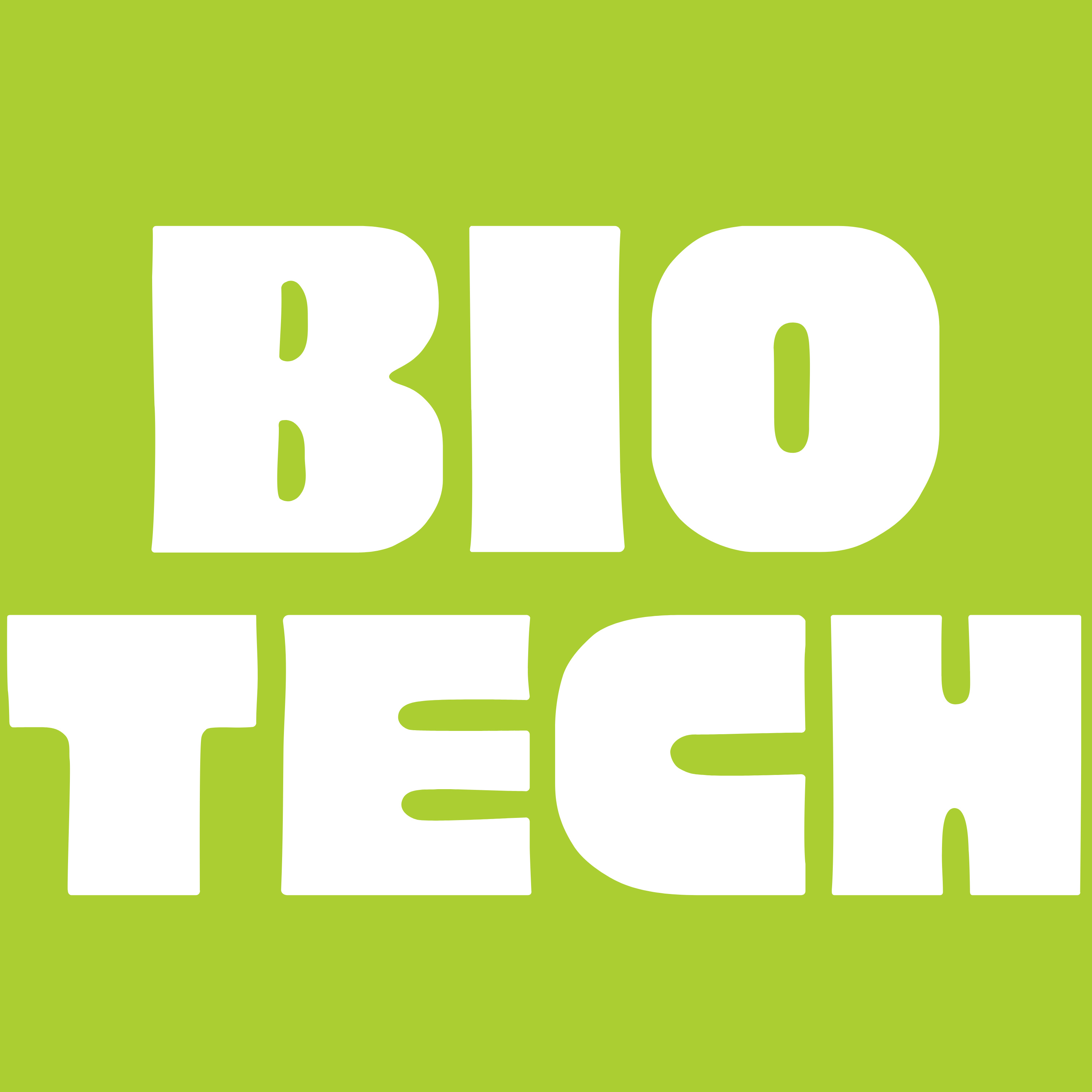
Scaling Nerds | Startup PR, Thought Leadership and Storytelling for Startup Founders(Old/R2G) 6.8. Cacao-free chocolate 🍫 and cacao's issues with WNWN Co-Founder Ahrum Pak- An old episode from the Red to Green Podcast on Food Tech & Bio Tech. Listen if you are interested in the future of food, but this isn’t Scaling Nerds.Red to Green was a podcast that investigated how to transition the food industry from harmful to healthy, from polluting to sustainable, from Red to Green. Each season had a different topicSeason: Cultivated MeatSeason: Plastic AlternativesSeason: Food HistorySeason: Food WasteSeason: Biotech in FoodSeason: Book Reviews on the future of foodWhy is the cacao trade so broken? Why does ch...
2023-01-2530 min
Scaling Nerds | Startup PR, Thought Leadership and Storytelling for Startup Founders(Old/R2G) 6.7. A Critical View on Biotech 🔍 Is This Healthy? Is This Safe? 🤔 With Larissa Zimberoff- An old episode from the Red to Green Podcast on Food Tech & Bio Tech. Listen if you are interested in the future of food, but this isn’t Scaling Nerds.Red to Green was a podcast that investigated how to transition the food industry from harmful to healthy, from polluting to sustainable, from Red to Green. Each season had a different topicSeason: Cultivated MeatSeason: Plastic AlternativesSeason: Food HistorySeason: Food WasteSeason: Biotech in FoodSeason: Book Reviews on the future of foodThe issue is "ingedientisation" - our foods are increasingly pu...
2023-01-1828 min
Scaling Nerds | Startup PR, Thought Leadership and Storytelling for Startup Founders(Old/R2G) 6.6. Molecular Farming - Growing Whey 🐮 in Plants 🌱 with Miruku CEO Amos Palfreyman- An old episode from the Red to Green Podcast on Food Tech & Bio Tech. Listen if you are interested in the future of food, but this isn’t Scaling Nerds.Red to Green was a podcast that investigated how to transition the food industry from harmful to healthy, from polluting to sustainable, from Red to Green. Each season had a different topicSeason: Cultivated MeatSeason: Plastic AlternativesSeason: Food HistorySeason: Food WasteSeason: Biotech in FoodSeason: Book Reviews on the future of foodWhat if you make a plant grow dairy proteins? A...
2023-01-1135 min
Scaling Nerds | Startup PR, Thought Leadership and Storytelling for Startup Founders(Old/R2G) 6.5. Bioactive Proteins and Cell-based Milk with TurtleTree CSO Aletta Schnitzler- An old episode from the Red to Green Podcast on Food Tech & Bio Tech. Listen if you are interested in the future of food, but this isn’t Scaling Nerds.Red to Green was a podcast that investigated how to transition the food industry from harmful to healthy, from polluting to sustainable, from Red to Green. Each season had a different topicSeason: Cultivated MeatSeason: Plastic AlternativesSeason: Food HistorySeason: Food WasteSeason: Biotech in FoodSeason: Book Reviews on the future of foodGlands would work like little milk machines. You give th...
2022-12-2126 min
Scaling Nerds | Startup PR, Thought Leadership and Storytelling for Startup Founders(Old/R2G) 6.4. Traditional Fermentation 🍷 Yogurt, Kimchi and Wine with Empirical Spirits Co-Founder Lars Williams- An old episode from the Red to Green Podcast on Food Tech & Bio Tech. Listen if you are interested in the future of food, but this isn’t Scaling Nerds.Red to Green was a podcast that investigated how to transition the food industry from harmful to healthy, from polluting to sustainable, from Red to Green. Each season had a different topicSeason: Cultivated MeatSeason: Plastic AlternativesSeason: Food HistorySeason: Food WasteSeason: Biotech in FoodSeason: Book Reviews on the future of foodWe all have eaten fermented foods. Fermented foods are kn...
2022-12-1429 min
Scaling Nerds | Startup PR, Thought Leadership and Storytelling for Startup Founders(Old/R2G) 6.3. Gas Fermentation 🏭 Proteins From CO2, Hydrogen and Salt - with Arkeon Co-Founder Gregor Tegel- An old episode from the Red to Green Podcast on Food Tech & Bio Tech. Listen if you are interested in the future of food, but this isn’t Scaling Nerds.Red to Green was a podcast that investigated how to transition the food industry from harmful to healthy, from polluting to sustainable, from Red to Green. Each season had a different topicSeason: Cultivated MeatSeason: Plastic AlternativesSeason: Food HistorySeason: Food WasteSeason: Biotech in FoodSeason: Book Reviews on the future of foodWhat if you could make pure protein by feeding mi...
2022-12-0739 min
Scaling Nerds | Startup PR, Thought Leadership and Storytelling for Startup Founders(Old/R2G) 6.2. Three Types of Biomass Fermentation 🍄 with Nature's Fynd CSO Debbie Yaver- An old episode from the Red to Green Podcast on Food Tech & Bio Tech. Listen if you are interested in the future of food, but this isn’t Scaling Nerds.Red to Green was a podcast that investigated how to transition the food industry from harmful to healthy, from polluting to sustainable, from Red to Green. Each season had a different topicSeason: Cultivated MeatSeason: Plastic AlternativesSeason: Food HistorySeason: Food WasteSeason: Biotech in FoodSeason: Book Reviews on the future of foodHow biomass fermentation is different from precision fermentation and wh...
2022-11-3029 min
Scaling Nerds | Startup PR, Thought Leadership and Storytelling for Startup Founders(Old/R2G) 6. SEASON - BIOTECH IN FOOD - An Introduction with Irina Gerry from Change Foods- An old episode from the Red to Green Podcast on Food Tech & Bio Tech. Listen if you are interested in the future of food, but this isn’t Scaling Nerds.Red to Green was a podcast that investigated how to transition the food industry from harmful to healthy, from polluting to sustainable, from Red to Green. Each season had a different topicSeason: Cultivated MeatSeason: Plastic AlternativesSeason: Food HistorySeason: Food WasteSeason: Biotech in FoodSeason: Book Reviews on the future of foodScientists and founders use cutting-edge technologies to make ingredients wi...
2022-11-2328 min
Scaling Nerds | Startup PR, Thought Leadership and Storytelling for Startup Founders(Old/R2G) 5.11. How China Became the 2nd Largest Dairy Nation 🧀 A Lactose Intolerant Society Meets Political Influence- An old episode from the Red to Green Podcast on Food Tech & Bio Tech. Listen if you are interested in the future of food, but this isn’t Scaling Nerds.Red to Green was a podcast that investigated how to transition the food industry from harmful to healthy, from polluting to sustainable, from Red to Green. Each season had a different topicSeason: Cultivated MeatSeason: Plastic AlternativesSeason: Food HistorySeason: Food WasteSeason: Biotech in FoodSeason: Book Reviews on the future of foodSince 2020 China is the second largest dairy market globally an...
2022-08-2414 min
Scaling Nerds | Startup PR, Thought Leadership and Storytelling for Startup Founders(Old/R2G) 5.10. Lessons from the New Coke - How Coca Cola Flopped in a Race to Better Taste- An old episode from the Red to Green Podcast on Food Tech & Bio Tech. Listen if you are interested in the future of food, but this isn’t Scaling Nerds.Red to Green was a podcast that investigated how to transition the food industry from harmful to healthy, from polluting to sustainable, from Red to Green. Each season had a different topicSeason: Cultivated MeatSeason: Plastic AlternativesSeason: Food HistorySeason: Food WasteSeason: Biotech in FoodSeason: Book Reviews on the future of foodIn April 1985, the Coca-Cola Company decided to discontinue its mo...
2022-08-1710 min
Scaling Nerds | Startup PR, Thought Leadership and Storytelling for Startup Founders(Old/R2G) 5.9. Bubble Tea Boom, Bust and Rise - How Faulty Science Destroyed an Industry 💣- An old episode from the Red to Green Podcast on Food Tech & Bio Tech. Listen if you are interested in the future of food, but this isn’t Scaling Nerds.Red to Green was a podcast that investigated how to transition the food industry from harmful to healthy, from polluting to sustainable, from Red to Green. Each season had a different topicSeason: Cultivated MeatSeason: Plastic AlternativesSeason: Food HistorySeason: Food WasteSeason: Biotech in FoodSeason: Book Reviews on the future of foodBubble tea used to be a popular drink with sh...
2022-08-1009 min
Scaling Nerds | Startup PR, Thought Leadership and Storytelling for Startup Founders(Old/R2G) 5.8. How microwaves and freezers changed food culture forever 🥡 Food history for the future of food.- An old episode from the Red to Green Podcast on Food Tech & Bio Tech. Listen if you are interested in the future of food, but this isn’t Scaling Nerds.Red to Green was a podcast that investigated how to transition the food industry from harmful to healthy, from polluting to sustainable, from Red to Green. Each season had a different topicSeason: Cultivated MeatSeason: Plastic AlternativesSeason: Food HistorySeason: Food WasteSeason: Biotech in FoodSeason: Book Reviews on the future of foodMicrowave is hard to beat for sheer convenience. But th...
2022-08-0315 min
Scaling Nerds | Startup PR, Thought Leadership and Storytelling for Startup Founders(Old/R2G) 3.12. Season 3 final: Toxic Positivity ☣️ why benefits are not enough - lessons from the fossil fuel industry 🛢️ on personal climate action with Prof. Kimberly Nicholas, Dr Gulbanu Kaptan- An old episode from the Red to Green Podcast on Food Tech & Bio Tech. Listen if you are interested in the future of food, but this isn’t Scaling Nerds.Red to Green was a podcast that investigated how to transition the food industry from harmful to healthy, from polluting to sustainable, from Red to Green. Each season had a different topicSeason: Cultivated MeatSeason: Plastic AlternativesSeason: Food HistorySeason: Food WasteSeason: Biotech in FoodSeason: Book Reviews on the future of foodwe are approaching the end of this season on pr...
2022-07-2229 min
Scaling Nerds | Startup PR, Thought Leadership and Storytelling for Startup Founders(Old/R2G) 5.6. Food forever - how tin cans revolutionised the food industry 🥫 - food history for the future of food- An old episode from the Red to Green Podcast on Food Tech & Bio Tech. Listen if you are interested in the future of food, but this isn’t Scaling Nerds.Red to Green was a podcast that investigated how to transition the food industry from harmful to healthy, from polluting to sustainable, from Red to Green. Each season had a different topicSeason: Cultivated MeatSeason: Plastic AlternativesSeason: Food HistorySeason: Food WasteSeason: Biotech in FoodSeason: Book Reviews on the future of foodEven something as useful as a tin can - a...
2022-07-2014 min
Scaling Nerds | Startup PR, Thought Leadership and Storytelling for Startup Founders4.10. Corporate Accountability for Food Waste - a Lawyers Perspective 🕵️If you could make the world leaders adopt 1 piece of the legislature on food waste - which one should it be? According to Carrie Bradshaw it should be extended producer responsibility. Make the big players accountable for the issues they cause up and down the supply chain.
Connect with Marina on LinkedIn: https://www.linkedin.com/in/schmidt-marina/
To stay up-to-date for future episodes take 3 seconds to click on “follow” and subscribe to Red to Green.
More info and links to resources on https://redtogreen.solutions/
For sponsorships, collaborations, volunteering, or feedback write Marina at ch...
2022-01-2625 min
Scaling Nerds | Startup PR, Thought Leadership and Storytelling for Startup Founders(Old/R2G) 4.9. The Chef's Perspective 🧑🍳 Regional, Circular and Zero Waste Cooking- An old episode from the Red to Green Podcast on Food Tech & Bio Tech. Listen if you are interested in the future of food, but this isn’t Scaling Nerds.Red to Green was a podcast that investigated how to transition the food industry from harmful to healthy, from polluting to sustainable, from Red to Green. Each season had a different topicSeason: Cultivated MeatSeason: Plastic AlternativesSeason: Food HistorySeason: Food WasteSeason: Biotech in FoodSeason: Book Reviews on the future of foodI know we tend to be quite tech-centric at Re...
2022-01-1822 min
Scaling Nerds | Startup PR, Thought Leadership and Storytelling for Startup Founders(Old/R2G) 4.8. Food Rescue - an Activists View on Retailer Waste🚨 with Matt Homewood- An old episode from the Red to Green Podcast on Food Tech & Bio Tech. Listen if you are interested in the future of food, but this isn’t Scaling Nerds.Red to Green was a podcast that investigated how to transition the food industry from harmful to healthy, from polluting to sustainable, from Red to Green. Each season had a different topicSeason: Cultivated MeatSeason: Plastic AlternativesSeason: Food HistorySeason: Food WasteSeason: Biotech in FoodSeason: Book Reviews on the future of foodSome call it dumpster diving, I call it food re...
2022-01-1131 min
Scaling Nerds | Startup PR, Thought Leadership and Storytelling for Startup Founders(Old/R2G) 4.7. The Psychology of Food Waste 🧠 with OLIO Co-Founder and CEO Tessa Clarke- An old episode from the Red to Green Podcast on Food Tech & Bio Tech. Listen if you are interested in the future of food, but this isn’t Scaling Nerds.Red to Green was a podcast that investigated how to transition the food industry from harmful to healthy, from polluting to sustainable, from Red to Green. Each season had a different topicSeason: Cultivated MeatSeason: Plastic AlternativesSeason: Food HistorySeason: Food WasteSeason: Biotech in FoodSeason: Book Reviews on the future of foodOne person's trash is another person's treasure. Some food th...
2021-12-2935 min
Scaling Nerds | Startup PR, Thought Leadership and Storytelling for Startup Founders4.7. Restaurant waste: you can't manage what you can't measure. Why some restaurants waste more, psychological nudges and how AI can help solve the problem with Winnow CEO Marc ZornesWinnow helps restaurants track, monitor, and reduce their food waste using AI-driven solutions. Find out how food waste is created in restaurant, how that helps both sustainability and what is the most wasteful restaurant model.
Connect with Marina on LinkedIn: https://www.linkedin.com/in/schmidt-marina/
To stay up-to-date for future episodes take 3 seconds to click on “follow” and subscribe to Red to Green.
More info and links to resources on https://redtogreen.solutions/
For sponsorships, collaborations, volunteering, or feedback write Marina at change@redtogreen.solutions
Please leave a review on iT...
2021-12-2221 min
Scaling Nerds | Startup PR, Thought Leadership and Storytelling for Startup Founders(Old/R2G) 4.6. Dynamic Pricing 💸 with Wasteless Co-Founder and CEO Oded Omar- An old episode from the Red to Green Podcast on Food Tech & Bio Tech. Listen if you are interested in the future of food, but this isn’t Scaling Nerds.Red to Green was a podcast that investigated how to transition the food industry from harmful to healthy, from polluting to sustainable, from Red to Green. Each season had a different topicSeason: Cultivated MeatSeason: Plastic AlternativesSeason: Food HistorySeason: Food WasteSeason: Biotech in FoodSeason: Book Reviews on the future of foodIf one steak inspires in a week and the ot...
2021-12-1525 min
Scaling Nerds | Startup PR, Thought Leadership and Storytelling for Startup Founders(Old/R2G) 4.5. Food Waste in Rich vs. Developing Countries & Wholesalers vs. Retailers 🛒- An old episode from the Red to Green Podcast on Food Tech & Bio Tech. Listen if you are interested in the future of food, but this isn’t Scaling Nerds.Red to Green was a podcast that investigated how to transition the food industry from harmful to healthy, from polluting to sustainable, from Red to Green. Each season had a different topicSeason: Cultivated MeatSeason: Plastic AlternativesSeason: Food HistorySeason: Food WasteSeason: Biotech in FoodSeason: Book Reviews on the future of foodYou get a look at food waste from a wh...
2021-12-0827 min
Scaling Nerds | Startup PR, Thought Leadership and Storytelling for Startup Founders(Old/R2G) 4.4. Apeel - an Invisible Layer that Keeps Produce Fresh 🥑- An old episode from the Red to Green Podcast on Food Tech & Bio Tech. Listen if you are interested in the future of food, but this isn’t Scaling Nerds.Red to Green was a podcast that investigated how to transition the food industry from harmful to healthy, from polluting to sustainable, from Red to Green. Each season had a different topicSeason: Cultivated MeatSeason: Plastic AlternativesSeason: Food HistorySeason: Food WasteSeason: Biotech in FoodSeason: Book Reviews on the future of foodWe need skin to keep ourselves healthy. Apeel has cr...
2021-12-0727 min
Scaling Nerds | Startup PR, Thought Leadership and Storytelling for Startup Founders(Old/R2G) 4.3. AI to Predict Consumer Demand 🥦 Retailers Behind the Scenes with Afresh Co-Founder Matt Schwartz- An old episode from the Red to Green Podcast on Food Tech & Bio Tech. Listen if you are interested in the future of food, but this isn’t Scaling Nerds.Red to Green was a podcast that investigated how to transition the food industry from harmful to healthy, from polluting to sustainable, from Red to Green. Each season had a different topicSeason: Cultivated MeatSeason: Plastic AlternativesSeason: Food HistorySeason: Food WasteSeason: Biotech in FoodSeason: Book Reviews on the future of foodFood waste problems are 100x more complex with fresh pr...
2021-11-2429 min
Scaling Nerds | Startup PR, Thought Leadership and Storytelling for Startup Founders(Old/R2G) 4.2. From Farm 🌾 Directly to Fork🍴 a Direct to Consumer Model in China- An old episode from the Red to Green Podcast on Food Tech & Bio Tech. Listen if you are interested in the future of food, but this isn’t Scaling Nerds.Red to Green was a podcast that investigated how to transition the food industry from harmful to healthy, from polluting to sustainable, from Red to Green. Each season had a different topicSeason: Cultivated MeatSeason: Plastic AlternativesSeason: Food HistorySeason: Food WasteSeason: Biotech in FoodSeason: Book Reviews on the future of foodLearn how the Chinese e-commerce giant Pinduoduo skips distribution ce...
2021-11-1735 min
Scaling Nerds | Startup PR, Thought Leadership and Storytelling for Startup Founders(Old/R2G) 4. SEASON- FOOD WASTE 🥗 An Introduction on Impact, Causes and Solutions- An old episode from the Red to Green Podcast on Food Tech & Bio Tech. Listen if you are interested in the future of food, but this isn’t Scaling Nerds.Red to Green was a podcast that investigated how to transition the food industry from harmful to healthy, from polluting to sustainable, from Red to Green. Each season had a different topicSeason: Cultivated MeatSeason: Plastic AlternativesSeason: Food HistorySeason: Food WasteSeason: Biotech in FoodSeason: Book Reviews on the future of foodLearn about the impact of food waste, how it is...
2021-11-1031 min
Scaling Nerds | Startup PR, Thought Leadership and Storytelling for Startup Founders(Old/R2G) 3. SEASON FINAL - CONSUMER ACCEPTANCE - Industry Lobbying and Communicating the Hard Thingss ⚡ about animal agriculture with Irina Gerry CMO of Change Foods- An old episode from the Red to Green Podcast on Food Tech & Bio Tech. Listen if you are interested in the future of food, but this isn’t Scaling Nerds.Red to Green was a podcast that investigated how to transition the food industry from harmful to healthy, from polluting to sustainable, from Red to Green. Each season had a different topicSeason: Cultivated MeatSeason: Plastic AlternativesSeason: Food HistorySeason: Food WasteSeason: Biotech in FoodSeason: Book Reviews on the future of foodWe discuss the role of talking about the health be...
2021-10-2550 min
Scaling Nerds | Startup PR, Thought Leadership and Storytelling for Startup FoundersSE3 Final & Summary: Promoting Alt Proteins - Branding - Science Communication - Industry Lobbyism - Legislation - Features & BenefitsListen to some of the best quotes of the season on promoting alternative proteins. Marina Schmidt is reviewing the best points for you to reflect upon. Check out the other episodes as well!
Connect with Marina on LinkedIn: https://www.linkedin.com/in/schmidt-marina/
To stay up-to-date for future episodes take 3 seconds to click on “follow” and subscribe to Red to Green.
More info and links to resources on https://redtogreen.solutions/
For sponsorships, collaborations, volunteering, or feedback write Marina at change@redtogreen.solutions
Please leave a review on iTunes https://podcasts.appl...
2021-07-2144 min
Scaling Nerds | Startup PR, Thought Leadership and Storytelling for Startup Founders(Old/R2G) 3.8. Understanding is Not Enough 🔍 Power dynamics, Patents and Big Questions- An old episode from the Red to Green Podcast on Food Tech & Bio Tech. Listen if you are interested in the future of food, but this isn’t Scaling Nerds.Red to Green was a podcast that investigated how to transition the food industry from harmful to healthy, from polluting to sustainable, from Red to Green. Each season had a different topicSeason: Cultivated MeatSeason: Plastic AlternativesSeason: Food HistorySeason: Food WasteSeason: Biotech in FoodSeason: Book Reviews on the future of foodThis episode will make you reflect on some bigger to...
2021-06-2333 min
Scaling Nerds | Startup PR, Thought Leadership and Storytelling for Startup Founders(Old/R2G) 3.7. Open-Access Research, Including Farmers and Cell-Based Censorship in the US with GFI Scott Weathers- An old episode from the Red to Green Podcast on Food Tech & Bio Tech. Listen if you are interested in the future of food, but this isn’t Scaling Nerds.Red to Green was a podcast that investigated how to transition the food industry from harmful to healthy, from polluting to sustainable, from Red to Green. Each season had a different topicSeason: Cultivated MeatSeason: Plastic AlternativesSeason: Food HistorySeason: Food WasteSeason: Biotech in FoodSeason: Book Reviews on the future of foodThis episode is filled with good news: learn more ab...
2021-06-1634 min
Scaling Nerds | Startup PR, Thought Leadership and Storytelling for Startup Founders(Old/R2G) 3.6. Policies Against Milk Alternatives? ❌ EU Amendment 171 - History, Impact and Lessons- An old episode from the Red to Green Podcast on Food Tech & Bio Tech. Listen if you are interested in the future of food, but this isn’t Scaling Nerds.Red to Green was a podcast that investigated how to transition the food industry from harmful to healthy, from polluting to sustainable, from Red to Green. Each season had a different topicSeason: Cultivated MeatSeason: Plastic AlternativesSeason: Food HistorySeason: Food WasteSeason: Biotech in FoodSeason: Book Reviews on the future of foodYou may have heard of Amendment 171 in Europe. It ai...
2021-06-0928 min
Scaling Nerds | Startup PR, Thought Leadership and Storytelling for Startup Founders3.5. Cultured Dairy and Fish vs. Cultured Meat 🧫 Perception, Production and Promotion with FORMO and BluenaluThe difference in the process of consumer perception of dairy and fish vs. Cultured meat products.
Connect with Marina on LinkedIn: https://www.linkedin.com/in/schmidt-marina/ To stay up-to-date for future episodes take 3 seconds to click on “follow” and subscribe to Red to Green.
More info and links to resources on https://redtogreen.solutions/
For sponsorships, collaborations, volunteering, or feedback write Marina at change@redtogreen.solutions
Please leave a review on Spotify and iTunes This episode is part of our season on promoting cellular agriculture and alternative proteins. Alt proteins are a...
2021-05-2645 min
Scaling Nerds | Startup PR, Thought Leadership and Storytelling for Startup Founders(Old/R2G) 3.4. Branding Cultured Products 🍖 the Naturalness Trap with Nicky Quinn from Aleph Farms- An old episode from the Red to Green Podcast on Food Tech & Bio Tech. Listen if you are interested in the future of food, but this isn’t Scaling Nerds.Red to Green was a podcast that investigated how to transition the food industry from harmful to healthy, from polluting to sustainable, from Red to Green. Each season had a different topicSeason: Cultivated MeatSeason: Plastic AlternativesSeason: Food HistorySeason: Food WasteSeason: Biotech in FoodSeason: Book Reviews on the future of foodNicky Quinn has more than 15 years of experience in ma...
2021-05-1934 min
Scaling Nerds | Startup PR, Thought Leadership and Storytelling for Startup Founders3.3. Addressing Skeptics and Fake News 👽 with Conspiracy Researcher Dr. Daniel JolleyYes, finally - conspiracy theories! What an interesting topic. While we do focus on the term “conspiracies” the basic principles we talk about also apply to the questions “why do people believe in conspiracies? how do we convince skeptics? How do we engage in communication? How should we deal with fake news”
There hasn’t been much research done on conspiracy theories until recently and Prof. Daniel Jolley is one of the people leading this field. He is a Senior Lecturer in the Department of Psychology at Northumbria University in the UK. His research focuses on the consequenc...
2021-05-1235 min
Scaling Nerds | Startup PR, Thought Leadership and Storytelling for Startup Founders(Old/R2G) 3.2. 🦄 Startup vs. Corporate 🏛️ Stop Bashing Animal Agriculture with Jack A Bobo- An old episode from the Red to Green Podcast on Food Tech & Bio Tech. Listen if you are interested in the future of food, but this isn’t Scaling Nerds.Red to Green was a podcast that investigated how to transition the food industry from harmful to healthy, from polluting to sustainable, from Red to Green. Each season had a different topicSeason: Cultivated MeatSeason: Plastic AlternativesSeason: Food HistorySeason: Food WasteSeason: Biotech in FoodSeason: Book Reviews on the future of foodYou find out how plant-based and cell-based companies shouldn't ju...
2021-05-0548 min
Scaling Nerds | Startup PR, Thought Leadership and Storytelling for Startup Founders3.3. Research findings on consumer's attitudes towards cultured meat with Chris BryantWe continue looking into the consumer acceptance of cell-cultured products. This episode will give you a solid overview of the state of academic research in the field. If you read through academic research on this topic it’s hard to overlook today’s guest - Chris Bryant. He is the main author of over 10 published papers on consumer attitudes towards cultured meat. Specializing in this topic, he is also the Director of social science of the Cellular Agriculture Society. Chris Bryant has worked with animal-related non-profits including Viva!, The Good Food Institute, and Faunalytics as well as alternative protein comp...
2021-04-2837 min
Scaling Nerds | Startup PR, Thought Leadership and Storytelling for Startup Founders3. SEASON - CONSUMER ACCEPTANCE OF ALT PROTEINS - An Intro with Isha Datar from New HarvestHow a well-known meal replacement brand leveraged Reddit communities to become the most successful in the world. And how snack foods could be the Trojan horse, convincing people of novel foods they wouldn’t have tried otherwise. You will hear from Isha Datar the executive director of New Harvest. NewHarvest is a non-profit funding, academic research, shaping the safety conversation, and directing the future of cellular agriculture. Isha has co-founded perfect day making milk without cows and Clara Foods, making eggs without chicken.
Connect with Marina on LinkedIn: https://www.linkedin.com/in/schmidt-marina/ To stay up-to-date fo...
2021-04-2143 min
Scaling Nerds | Startup PR, Thought Leadership and Storytelling for Startup Founders🎁 Bonus Resource: 200 Impact Areas 💥 A Purpose Guide for Your CareerThe key to finding my life's passion was a spreadsheet (that's not even a joke.) ..7 years ago I co-founded a company in career consulting (still running). I talked with >hundreds< >
At some point I had to ask myself: wait, is career consulting in line with >my< >
I was very lucky that a friend shared a life-changing resource with me. It covers 120+ impact areas across food, politics, mobility, energy and many other fields with 400+ example companies.
I rated the impact areas on a scale of 0 = I wouldn't roll around in bed for this and 10 = I am...
2021-04-1405 min
Scaling Nerds | Startup PR, Thought Leadership and Storytelling for Startup Founders2.6. Styrofoam Made From Mycelium 🍄 Renewable Home Compostable Packagiong - with Paul Gilligan from Magical Mushroom CoWhat if there is an alternative that uses waste and creates a fully renewable alternative using fungi, which per definition, can safely go back to the earth? When you have something shipped, whether it be bottles of wine, some tech gadgets, or even furniture pieces, they need protection - the white, lightweight material is polystyrene, also known as styrofoam. Widely used for transportation, it is hardly recycled and 40% ends up in landfills. Today you will hear from Paul Gilligan, the CEO of The Magical Mushroom Company. spent 14 years at the supermarket chain Sainsbury’s in a range of senior ro...
2021-01-1233 min
Scaling Nerds | Startup PR, Thought Leadership and Storytelling for Startup Founders2.7. Plastic Bank: Giving plastic waste a worth - how recycling can address poverty with CEO David KatzPlastic Bank enables people to collect plastic and earn money with it, so they can lift themselves out of poverty. The Plastic Bank is an eco-system that provides an opportunity for the world to collect and trade plastic waste as a currency. For many years western countries shipped plastic waste to China until imports were banned in 2018. This hasn’t stopped, it just shifted. To Indonesia, Vietnam, Thailand, and other countries. Many poor communities near the coastal areas can’t afford proper recycling and the trash ends up in the sea. According to our interview guest today, David, the issu...
2021-01-0633 min
Scaling Nerds | Startup PR, Thought Leadership and Storytelling for Startup Founders2.5. Large Scale Reuse 🍾 Lessons from the German Reuse System and Circular RetailHow can reusable packaging help to reduce plastic waste? How could a system look like in which we buy for example our lentils, yogurts, and coffee in reusable glass jars and return them to be used - again, and again, and again? What are examples of large-scale reusable systems that are already successful today? You will hear this and much more from Kirils Jegorovs the Co-Founder and Lead Link of Circolution, a System Development company dedicated to building a system of Reusable Packaging scalable to all food segments, starting in Germany. Previously he worked in retail and developed new...
2020-12-1636 min
Scaling Nerds | Startup PR, Thought Leadership and Storytelling for Startup FoundersSE2: Plastic Alternatives & Sustainable Food Packaging 📦 | Plastic Toxicity | Recycling Greenwashing | Marina Schmidt & Nick JohnsonFind out what is awaiting you in this upcoming season and why replacing plastics is so crucial not only for the environment but for your personal health. We will share some research results on microplastic toxicity. You will hear learnings that we had so far including from one of the best documentaries that we have found in the space on how recycling is used as greenwashing. Also, we discuss how a 30 day less packaging challenge that turned out to become the best health-hack I ever tried will hopefully inspire you to benefit from it as well.
You...
2020-11-1119 min
Scaling Nerds | Startup PR, Thought Leadership and Storytelling for Startup Founders(Old/R2G) 1. SEASON FINAL - CELLULAR AGRICULTURE 🔮 Additional Resources 🎁- An old episode from the Red to Green Podcast on Food Tech & Bio Tech. Listen if you are interested in the future of food, but this isn’t Scaling Nerds.Red to Green was a podcast that investigated how to transition the food industry from harmful to healthy, from polluting to sustainable, from Red to Green. Each season had a different topicSeason: Cultivated MeatSeason: Plastic AlternativesSeason: Food HistorySeason: Food WasteSeason: Biotech in FoodSeason: Book Reviews on the future of foodTo finish the season on cell AG you will fi...
2020-08-0415 min
Scaling Nerds | Startup PR, Thought Leadership and Storytelling for Startup Founders(Old/R2G) 11. Three Investor's Perspectives & Challenges with European consumers- An old episode from the Red to Green Podcast on Food Tech & Bio Tech. Listen if you are interested in the future of food, but this isn’t Scaling Nerds.Red to Green was a podcast that investigated how to transition the food industry from harmful to healthy, from polluting to sustainable, from Red to Green. Each season had a different topicSeason: Cultivated MeatSeason: Plastic AlternativesSeason: Food HistorySeason: Food WasteSeason: Biotech in FoodSeason: Book Reviews on the future of foodThis episode features 3 interview guests and gives you a gr...
2020-07-3038 min
Scaling Nerds | Startup PR, Thought Leadership and Storytelling for Startup Founders(Old/R2G) 9. Cultured Shrimp - Shrimp Human Health and Sustainability Issues with Shiok Meats CEO & Co-Founder Dr. Sandhya Sriram- An old episode from the Red to Green Podcast on Food Tech & Bio Tech. Listen if you are interested in the future of food, but this isn’t Scaling Nerds.Red to Green was a podcast that investigated how to transition the food industry from harmful to healthy, from polluting to sustainable, from Red to Green. Each season had a different topicSeason: Cultivated MeatSeason: Plastic AlternativesSeason: Food HistorySeason: Food WasteSeason: Biotech in FoodSeason: Book Reviews on the future of foodDid you know that farmed shrimp is often grown in...
2020-07-1434 min
Scaling Nerds | Startup PR, Thought Leadership and Storytelling for Startup Founders(Old/R2G)8. Steak without Cow - NASA Projects & Becoming Carbon Neutral with Aleph Farms- An old episode from the Red to Green Podcast on Food Tech & Bio Tech. Listen if you are interested in the future of food, but this isn’t Scaling Nerds.Red to Green was a podcast that investigated how to transition the food industry from harmful to healthy, from polluting to sustainable, from Red to Green. Each season had a different topicSeason: Cultivated MeatSeason: Plastic AlternativesSeason: Food HistorySeason: Food WasteSeason: Biotech in FoodSeason: Book Reviews on the future of foodAleph Farms is working on the hardest challenge, the ho...
2020-07-0733 min
Scaling Nerds | Startup PR, Thought Leadership and Storytelling for Startup Founders(Old/R2G) 7. Cultured Fat & Foie Gras - How it is Produced - David Brandes and Eva Sommer- An old episode from the Red to Green Podcast on Food Tech & Bio Tech. Listen if you are interested in the future of food, but this isn’t Scaling Nerds.Red to Green was a podcast that investigated how to transition the food industry from harmful to healthy, from polluting to sustainable, from Red to Green. Each season had a different topicSeason: Cultivated MeatSeason: Plastic AlternativesSeason: Food HistorySeason: Food WasteSeason: Biotech in FoodSeason: Book Reviews on the future of foodPlant-based meat alternatives can get a big taste upgrade by...
2020-06-3031 min
Scaling Nerds | Startup PR, Thought Leadership and Storytelling for Startup Founders(Old/R2G) 6. Gas Fermentation - Proteins from CO2 and Hydrogen with SolarFoods CEO Pasi Vainikka- An old episode from the Red to Green Podcast on Food Tech & Bio Tech. Listen if you are interested in the future of food, but this isn’t Scaling Nerds.Red to Green was a podcast that investigated how to transition the food industry from harmful to healthy, from polluting to sustainable, from Red to Green. Each season had a different topicSeason: Cultivated MeatSeason: Plastic AlternativesSeason: Food HistorySeason: Food WasteSeason: Biotech in FoodSeason: Book Reviews on the future of foodCan you make food out of thin air? Yes, yo...
2020-06-2334 min
Scaling Nerds | Startup PR, Thought Leadership and Storytelling for Startup Founders(Old/R2G) 5. Plant- and Cell-based Pet Food will Disrupt a Broken Industry - CEO Wild Earth Ryan Bethencourt- An old episode from the Red to Green Podcast on Food Tech & Bio Tech. Listen if you are interested in the future of food, but this isn’t Scaling Nerds.Red to Green was a podcast that investigated how to transition the food industry from harmful to healthy, from polluting to sustainable, from Red to Green. Each season had a different topicSeason: Cultivated MeatSeason: Plastic AlternativesSeason: Food HistorySeason: Food WasteSeason: Biotech in FoodSeason: Book Reviews on the future of foodThere are a few industries that absolutely could use a...
2020-06-1630 min
Scaling Nerds | Startup PR, Thought Leadership and Storytelling for Startup Founders(Old/R2G) 1. An Introduction to Clean Meat 🥩 & why it is Game Changing - "Clean Meat" Author and The Better Meat Co. CEO Paul Shapiro- An old episode from the Red to Green Podcast on Food Tech & Bio Tech. Listen if you are interested in the future of food, but this isn’t Scaling Nerds.Red to Green was a podcast that investigated how to transition the food industry from harmful to healthy, from polluting to sustainable, from Red to Green. Each season had a different topicSeason: Cultivated MeatSeason: Plastic AlternativesSeason: Food HistorySeason: Food WasteSeason: Biotech in FoodSeason: Book Reviews on the future of foodYou can have your meat without needing to raise an...
2020-05-1235 min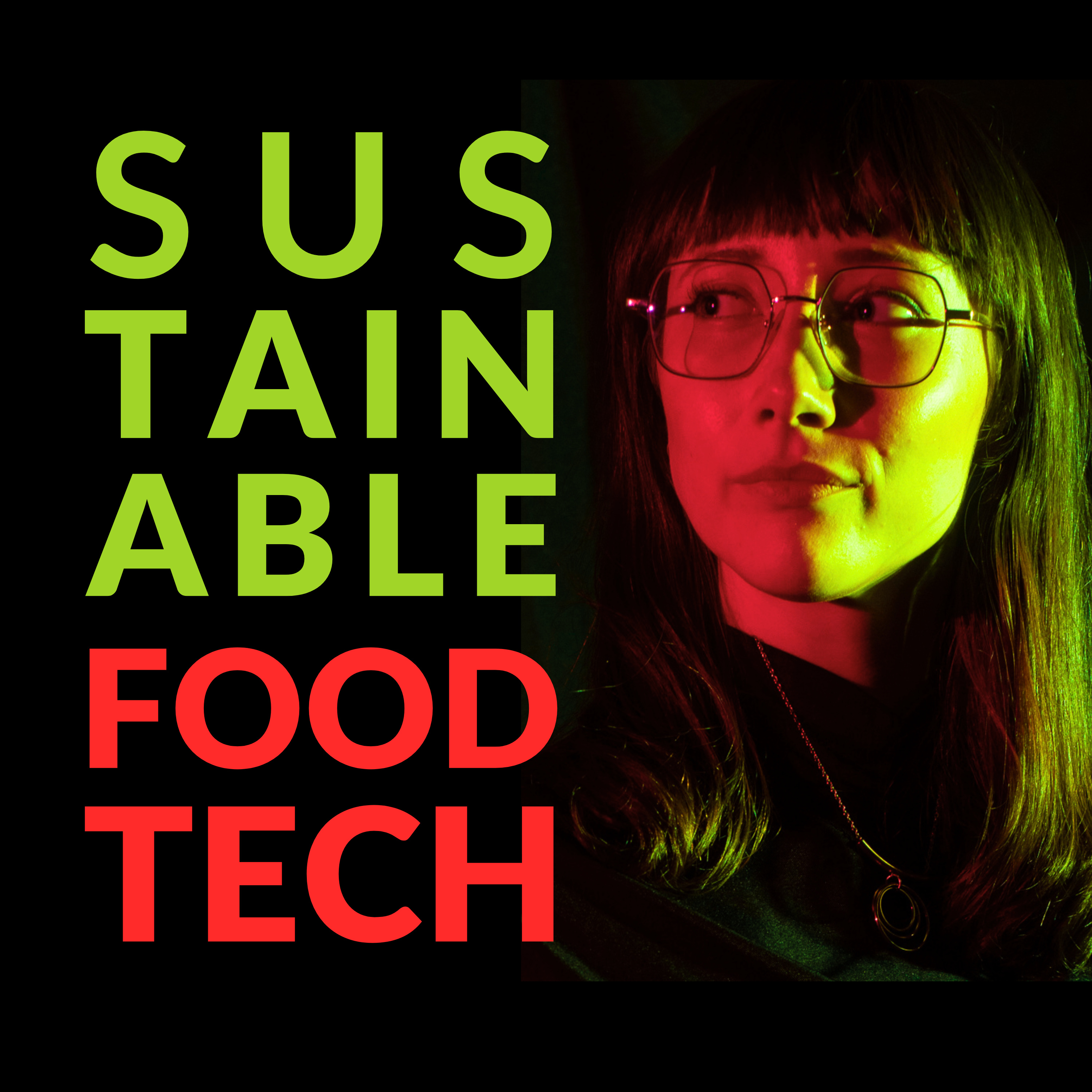
Scaling Nerds | Startup PR, Thought Leadership and Storytelling for Startup Founders(Old/R2G) ABOUT 👋 Welcome to Red to Green & Season 1 on Cellular Agriculture / Cell-based Meat / Cultivated meat / Cell-cultured Meat- An old episode from the Red to Green Podcast on Food Tech & Bio Tech. Listen if you are interested in the future of food, but this isn’t Scaling Nerds.Red to Green was a podcast that investigated how to transition the food industry from harmful to healthy, from polluting to sustainable, from Red to Green. Each season had a different topicSeason: Cultivated MeatSeason: Plastic AlternativesSeason: Food HistorySeason: Food WasteSeason: Biotech in FoodSeason: Book Reviews on the future of foodFind out what awaits you on this podcast, a li...
2020-05-1113 min